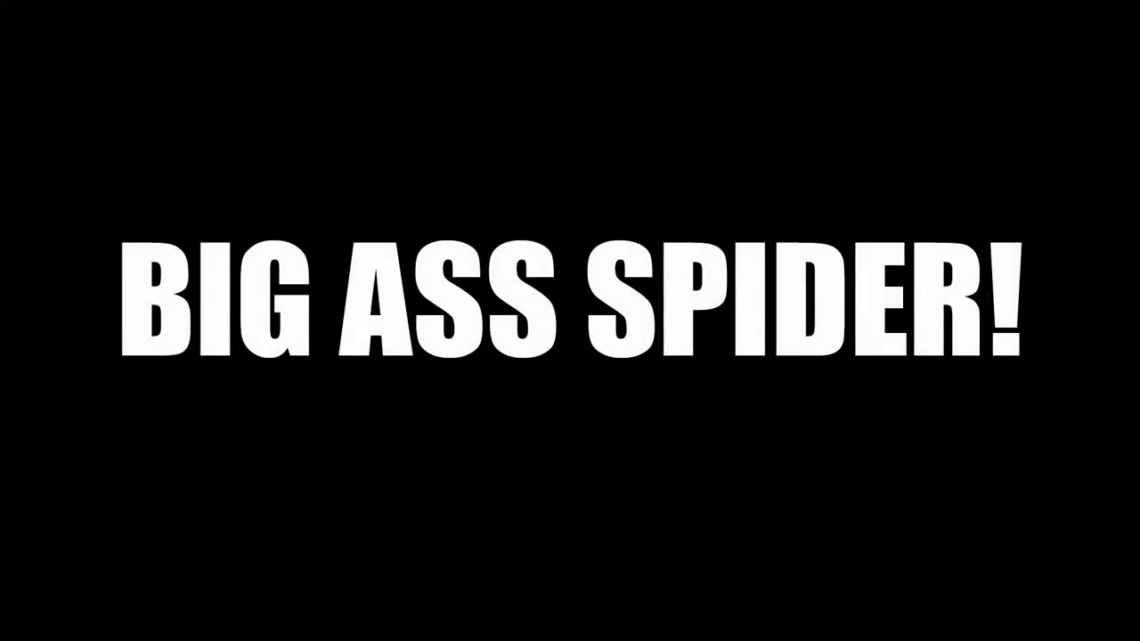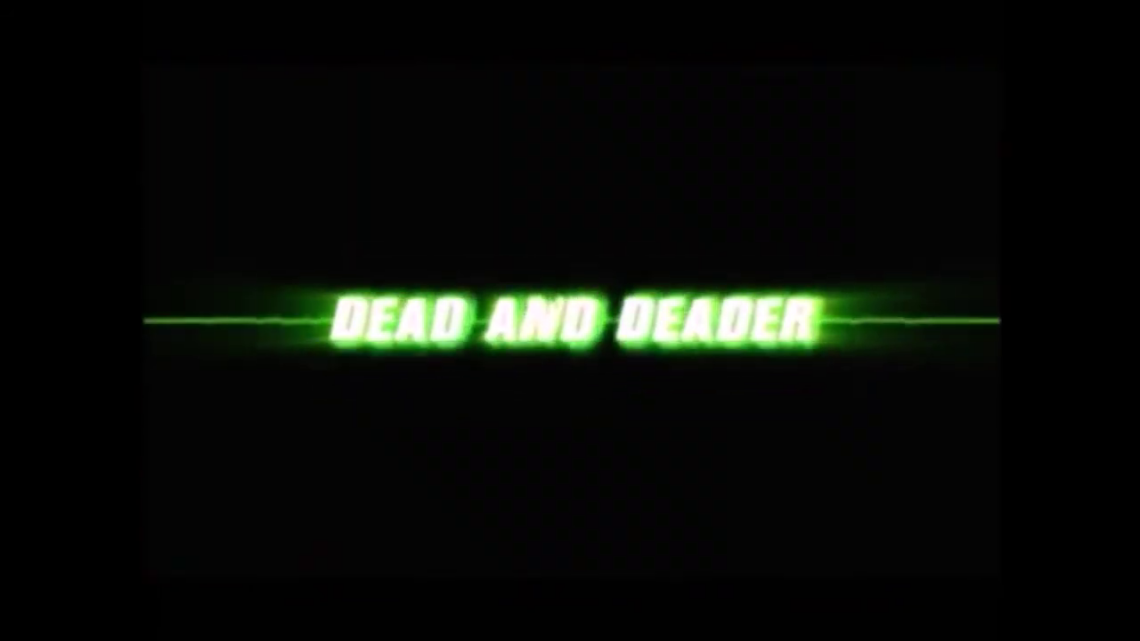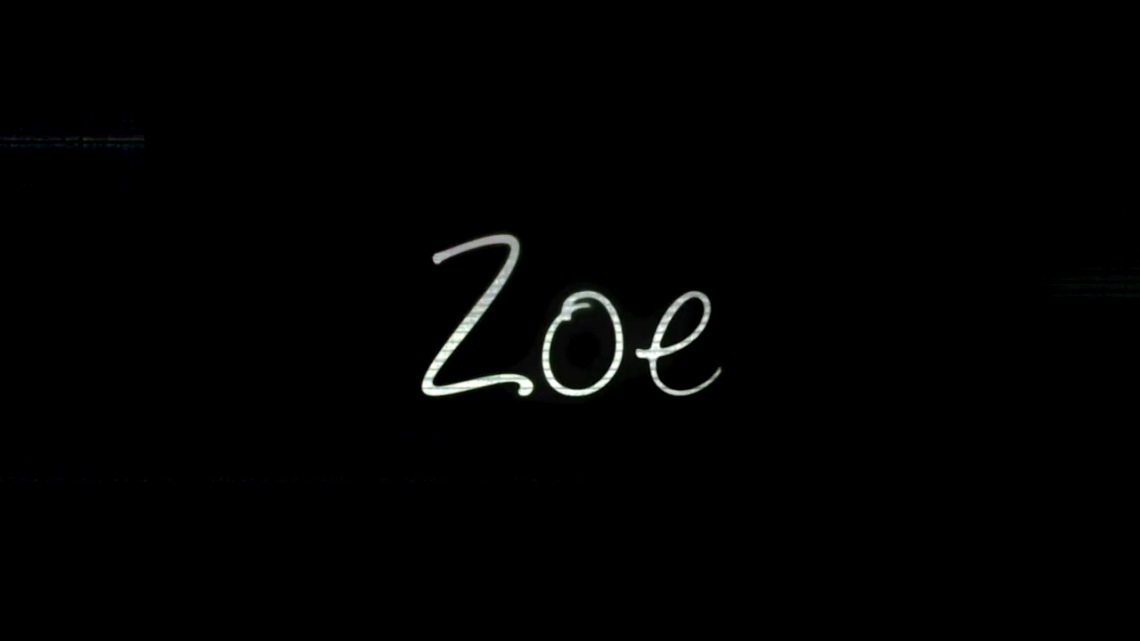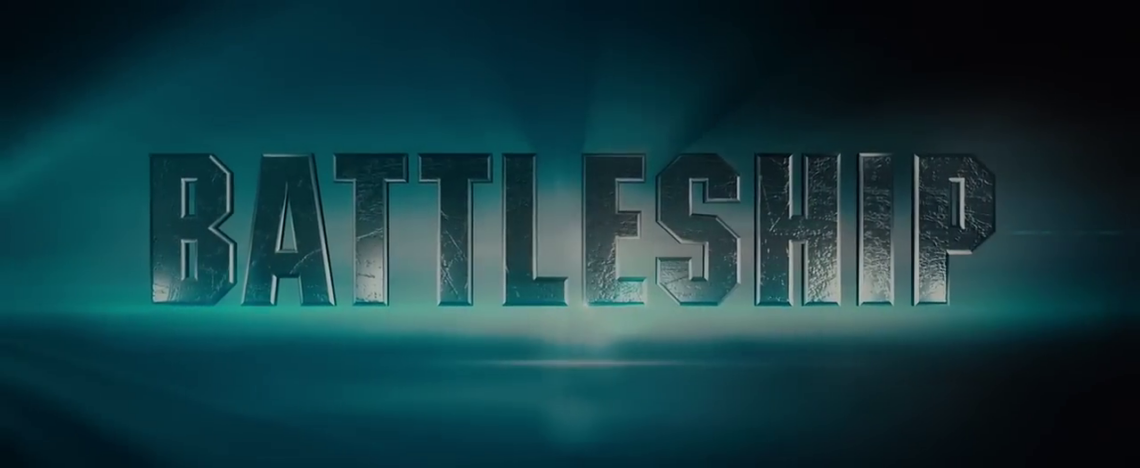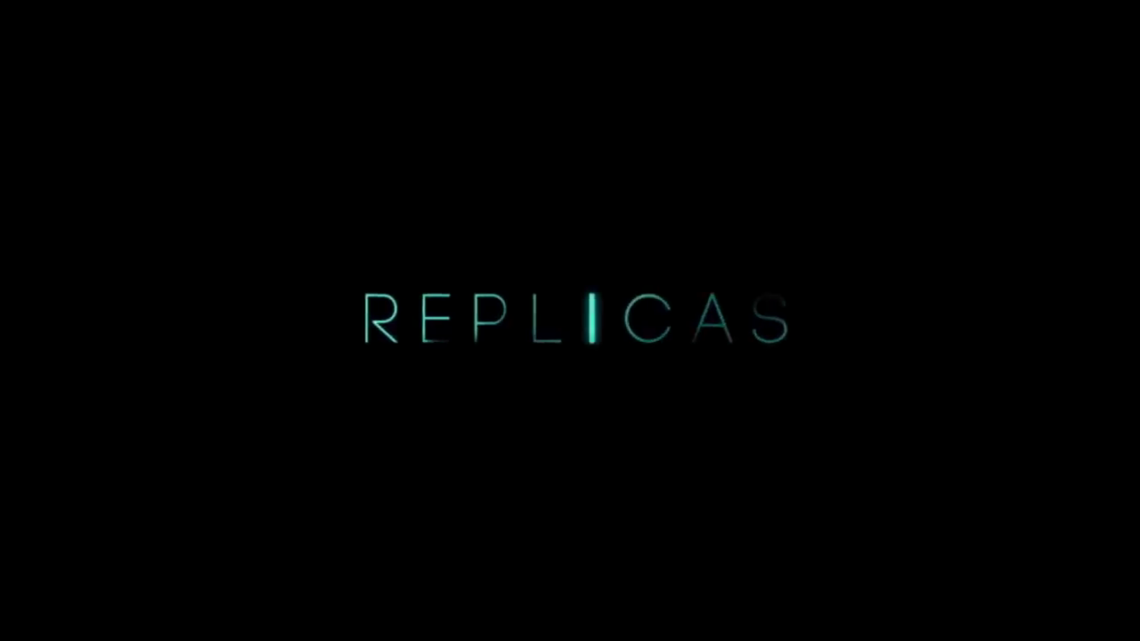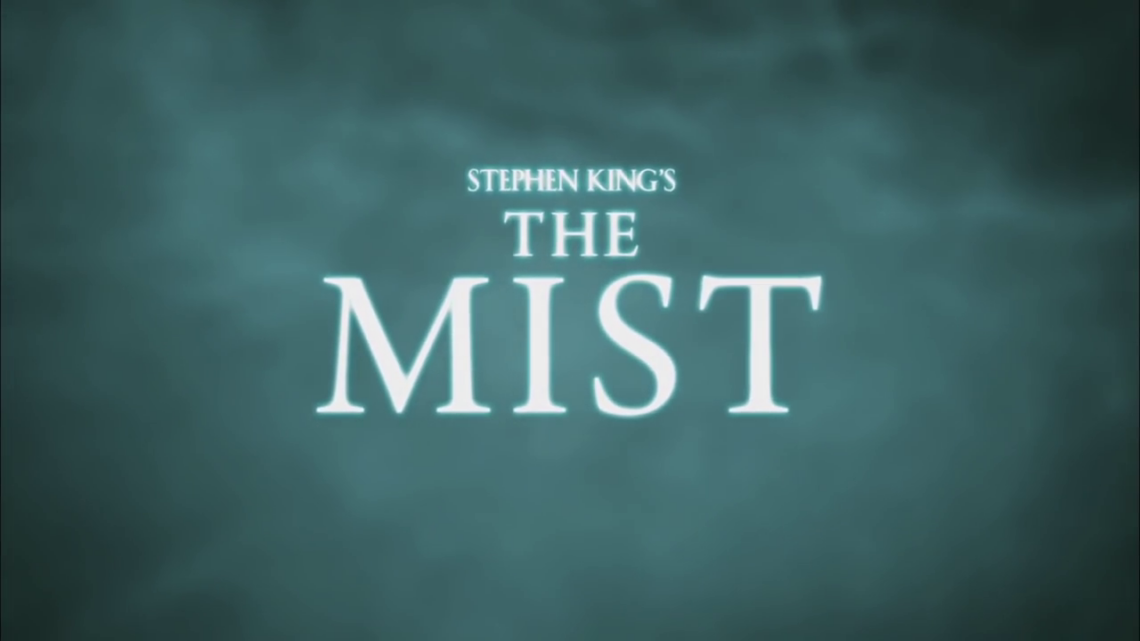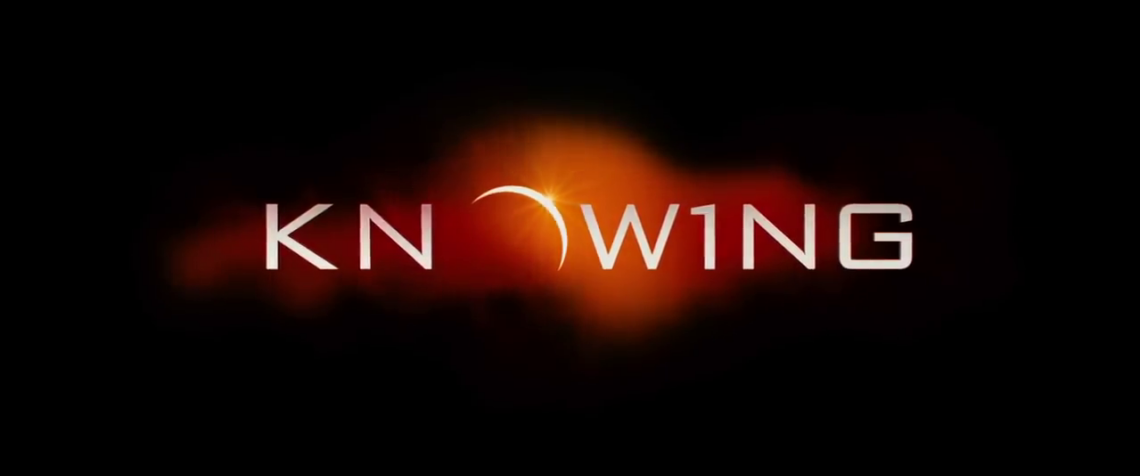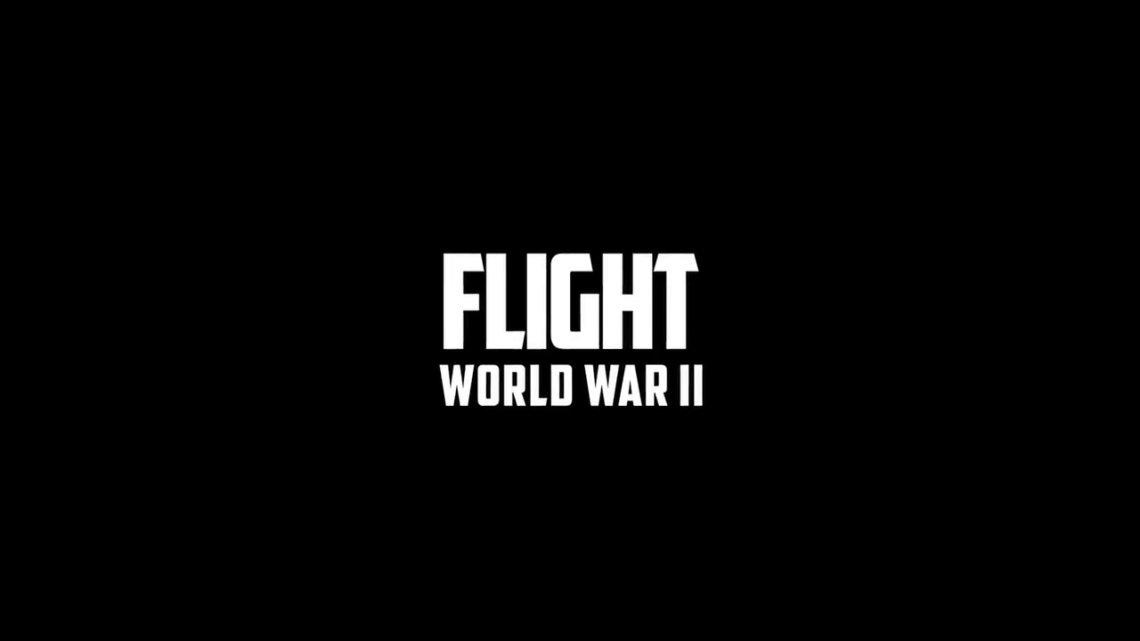-
#638 – Big Ass Spider! (2013)
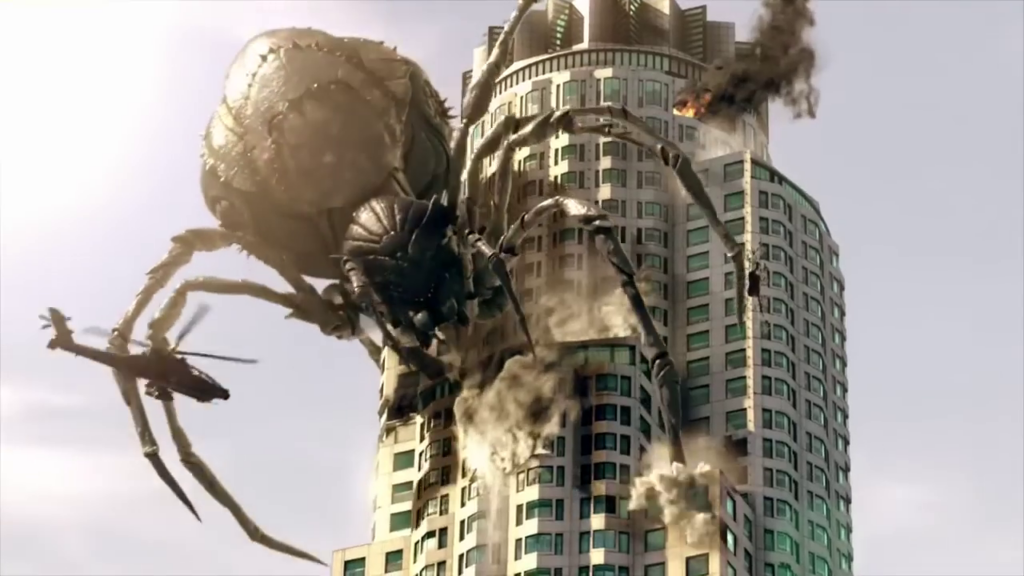


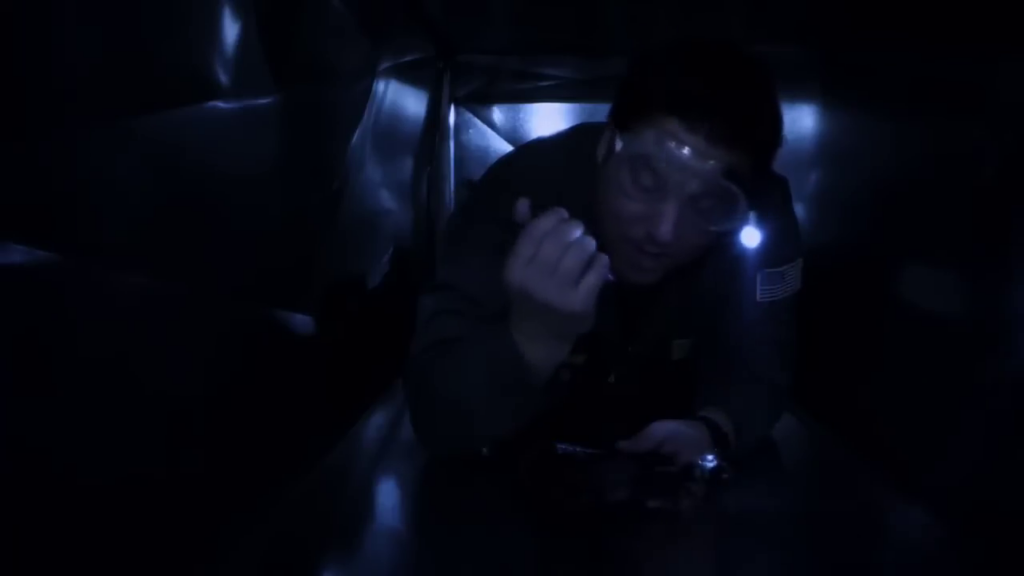

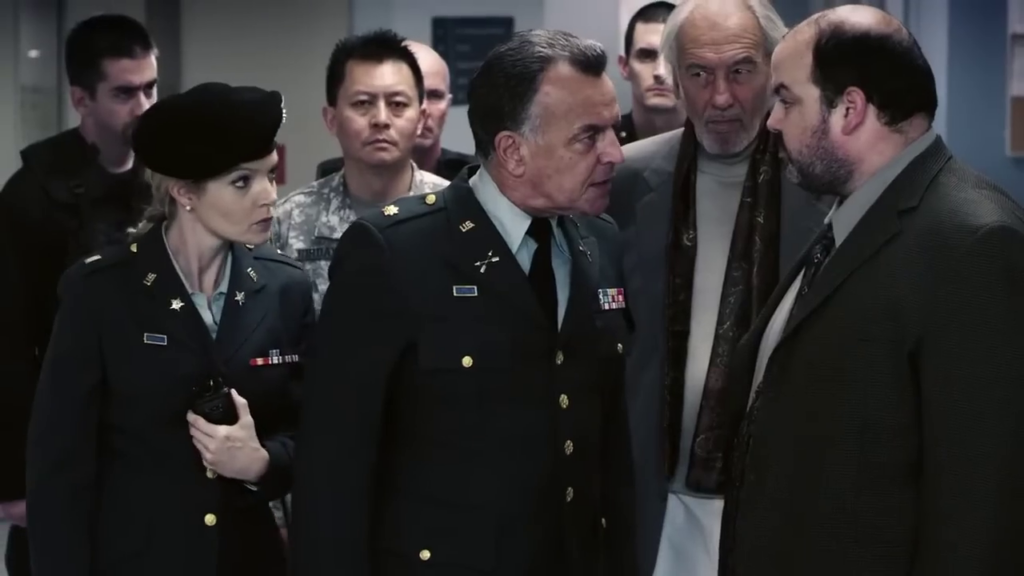
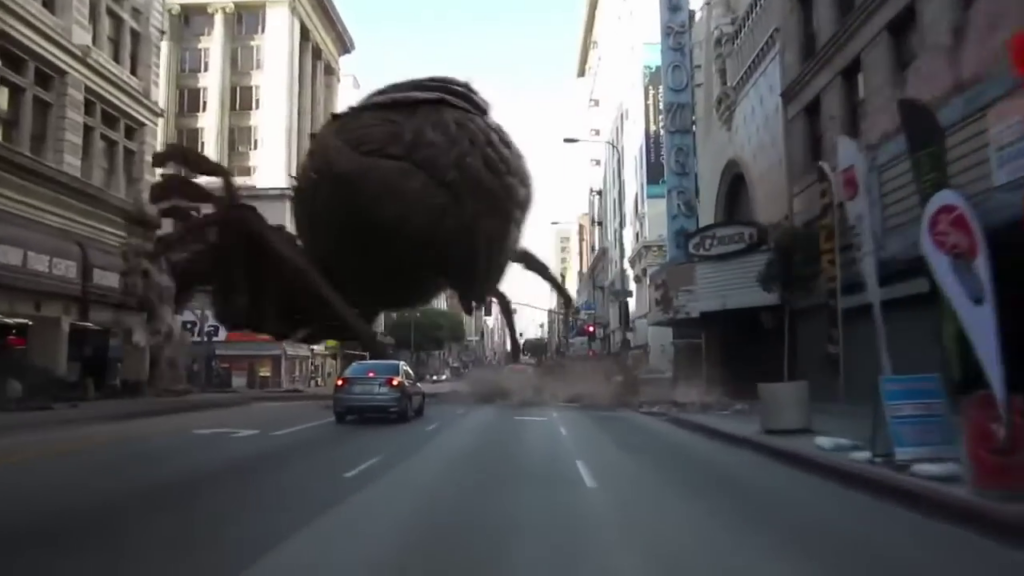

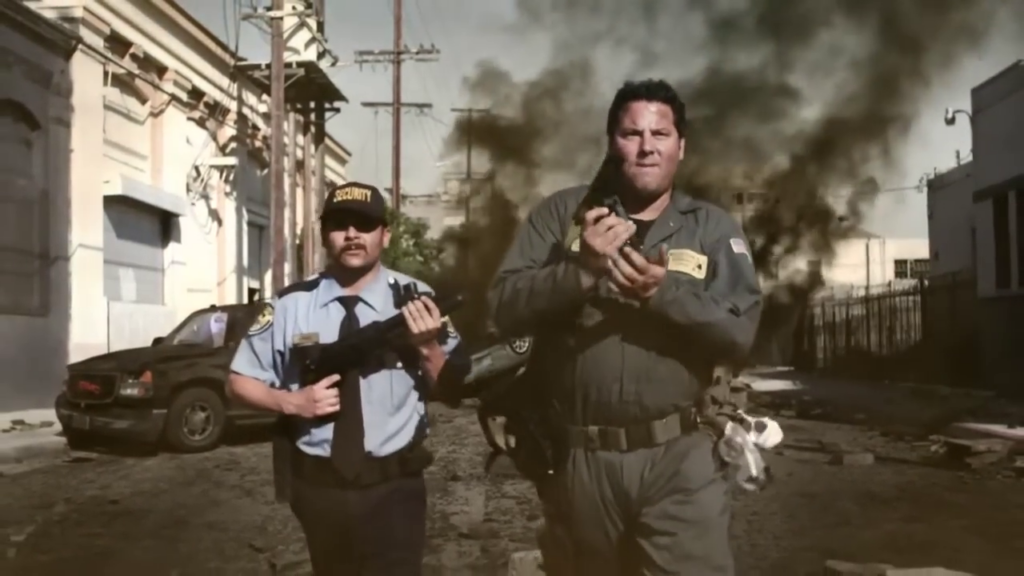
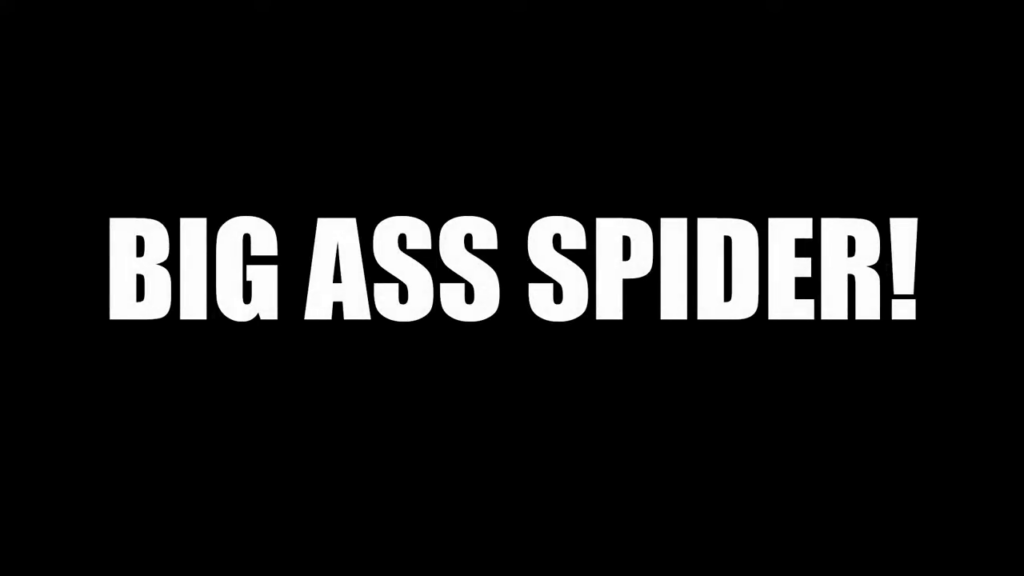
Big Ass Spider! (2013)
Film review #638
Director: Mike Mendez
SYNOPSIS: A lowly insect exterminator gets in over his head, as a giant spider that escaped from a military research facility starts to wreak havoc on a hospital. It’s a race against time to destroy the spider before it grows ever larger and begins to reproduce…
THOUGHTS/ANALYSIS: Big Ass Spider! is a 2013 sci-fi film. Starring Greg Grunberg as cash-strapped pest controller Alex Mathis, he gets caught up in the usual sci-fi shenanigans of a mutant experiment gone wrong, and escaping from a military research lab to wreak havoc. Slipping into the role of a film that recognises that is cheap schlock and a homage to the b-movie monster film in equal measure. It doesn’t try to be anything else, and it feels fairly comfortable in it’s role, as the cast try to stop the spider before it continues to grow and eventually reproduce. The film does have some highlights though: the gore is well done, with faces being ripped off and the like, and adds a bit of excitement to the film. On the other side, the film keeps a sense of fun, so you’re never bogged down too much in the film trying to take itself seriously. maybe these two things don’t mix too well, but in keeping with it being cheap shlock that knows what it is, it isn’t too much of a problem.
I thin the best way I can sum up this film is that it feels like a cartoon: the characters are seriously one-dimensional, and every scene with them in is so predictable with regards to what they are going to say. The prime example of this is the security guard whose only role is being the comedy relief and being Mexican: every joke revolves around him being Mexican, and eventually you do get tired of it. The film also follows the old b-movie trope of having a solitary female character, who of course serves as the main characters love interest. I know it’s meant to play on these typical tropes, but the film really clings to them so closely that it doesn’t give itself room to do anything else. I think the best way to describe this film is that it feels like a cartoon: while there may be some serious stuff happening, the characters are playing very strict and flat roles, and never stretch out beyond them. That’s not necessarily a bad thing though. Sure, Big Ass Spider! is predictable nonsense that won’t surprise you or change your life, but it does focus on having a bit of fun, and it genuinely shines through. Sometimes it feels like it’s trying too hard to stick to that one-dimensionality in the characters and setup, but it’s honestly more fun and entertaining than a lot of similar movies out there. The effects are cheap, the characters are predictable, but still manages to hold itself together for the runtime to at least make it entertaining.
-
#637 – Dead and Deader (2006)
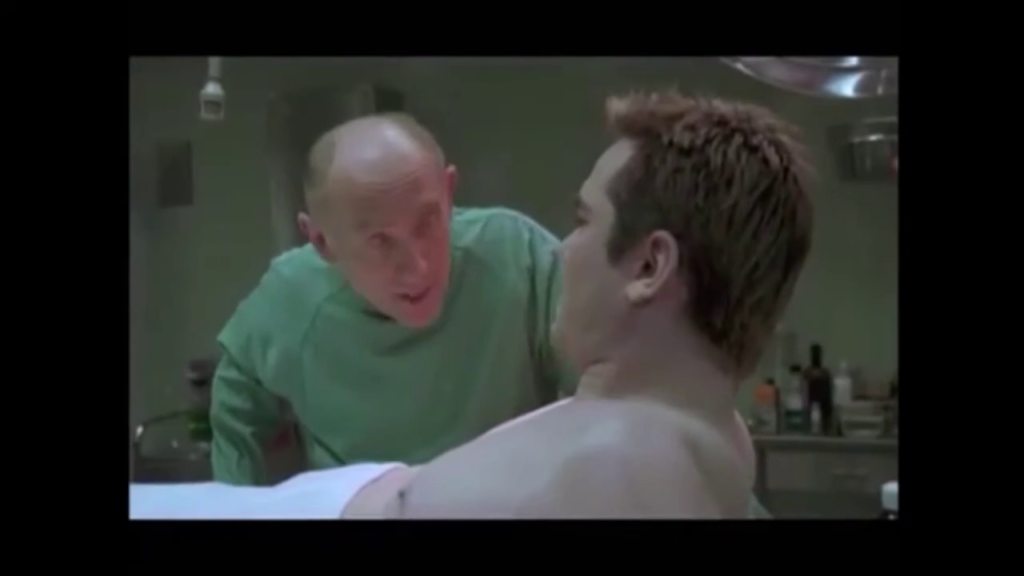
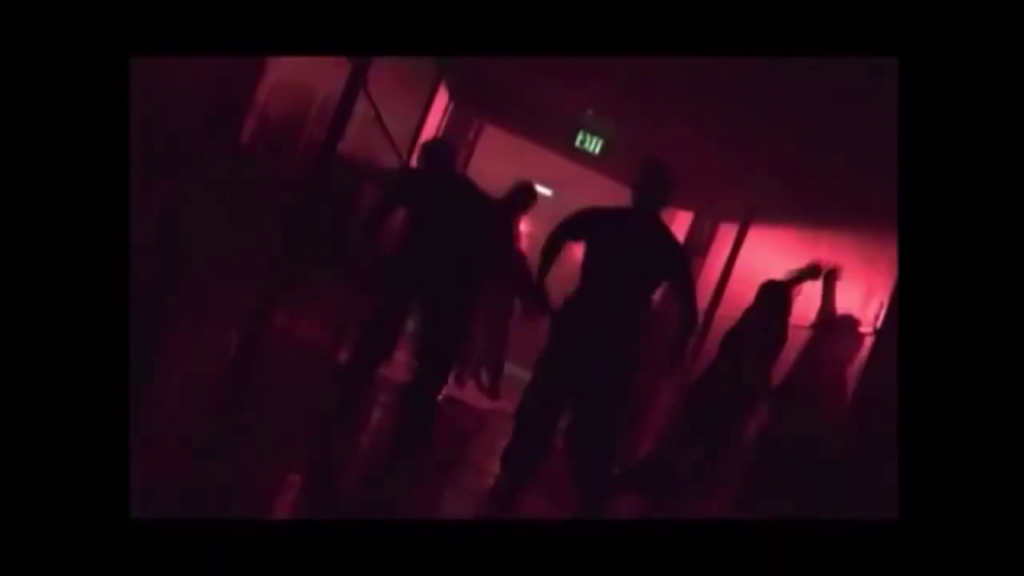
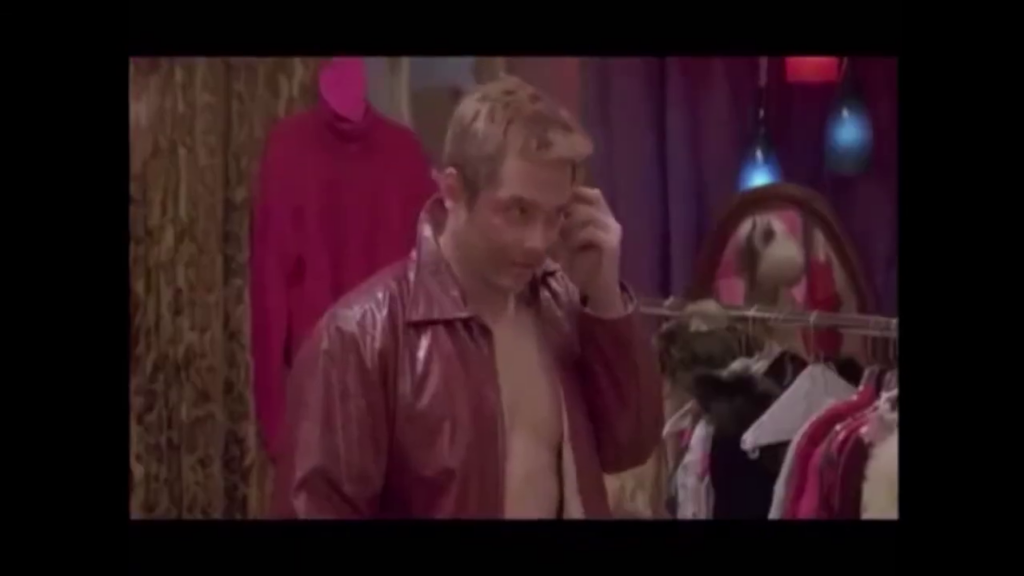
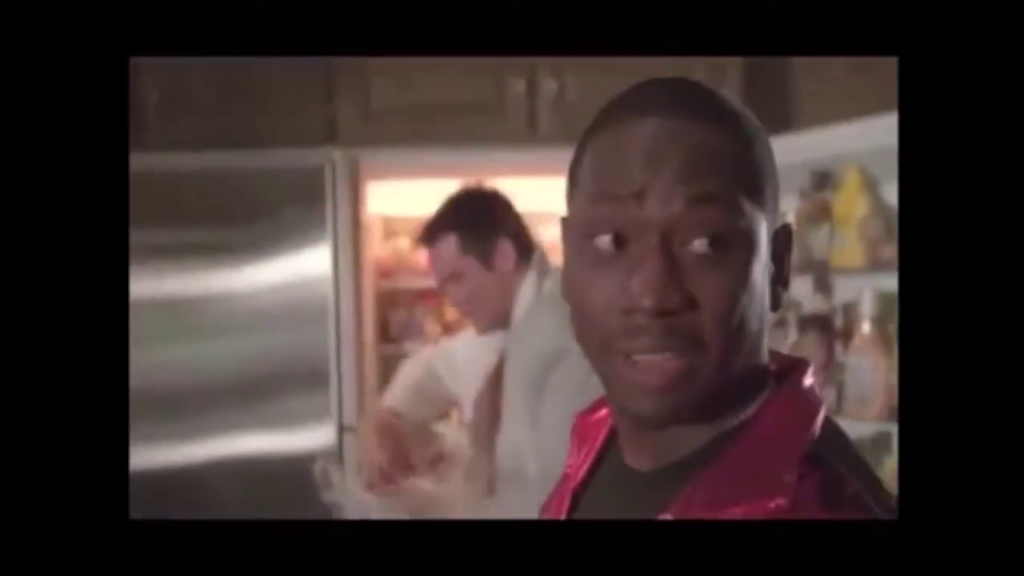
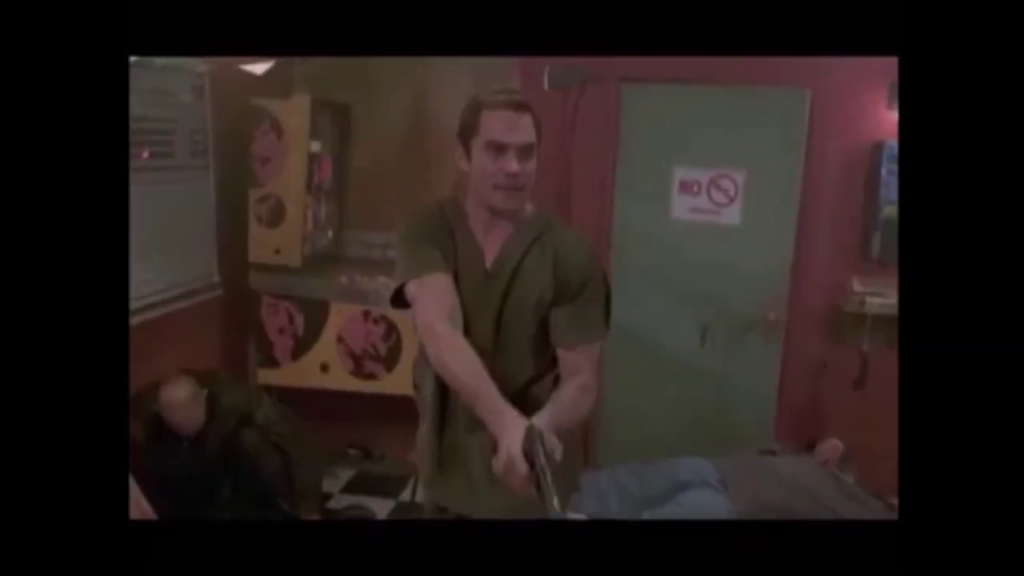
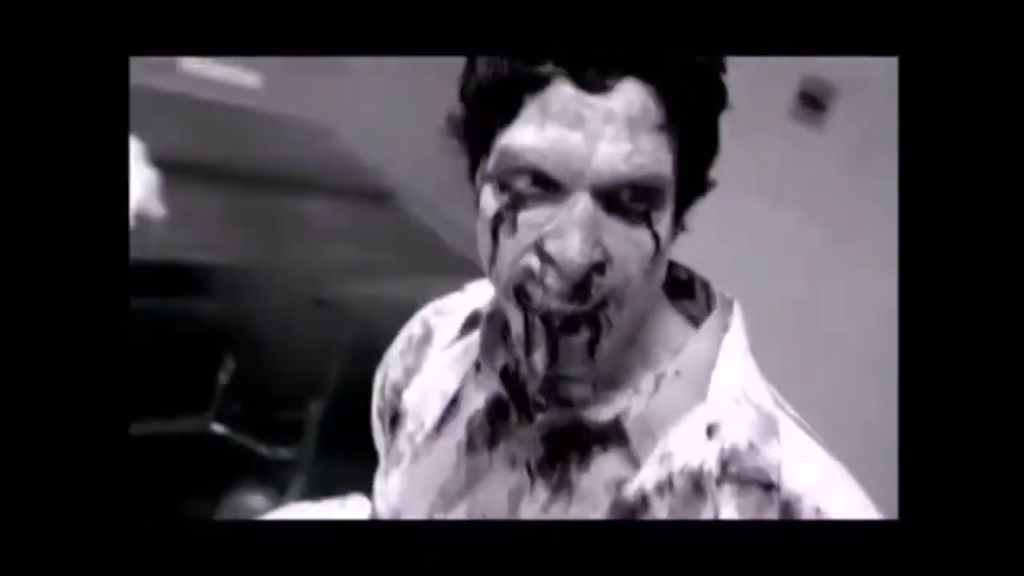
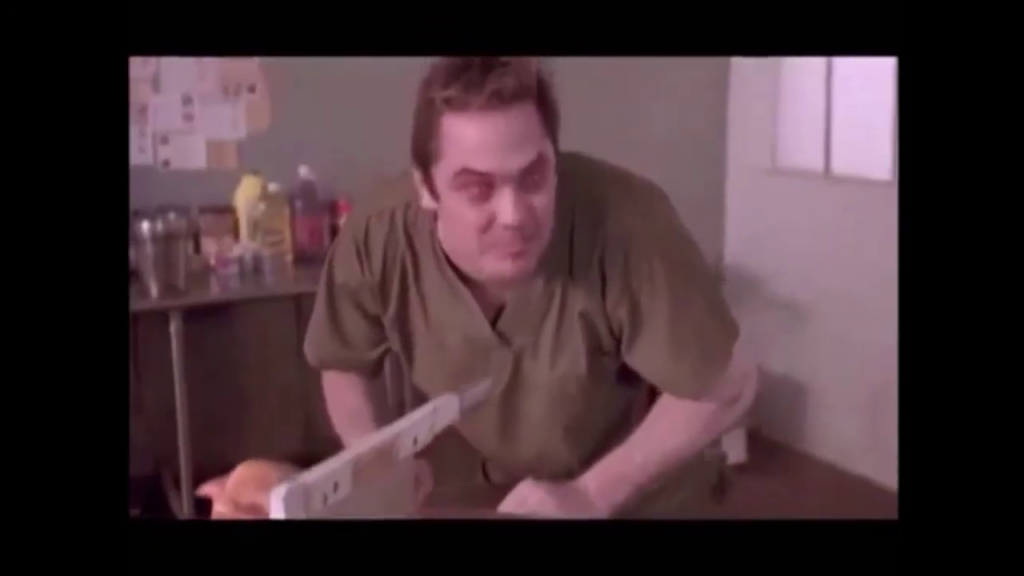
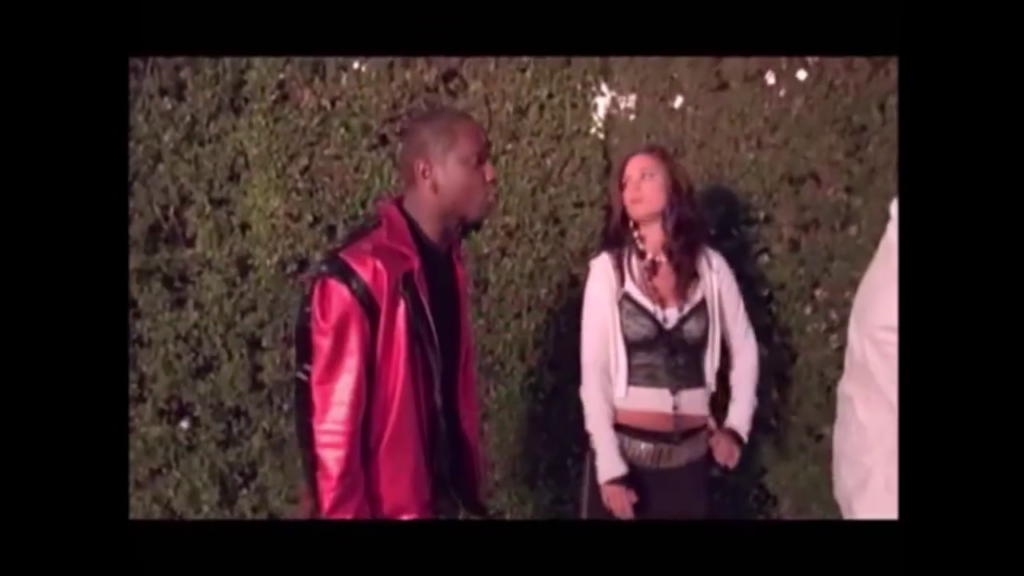
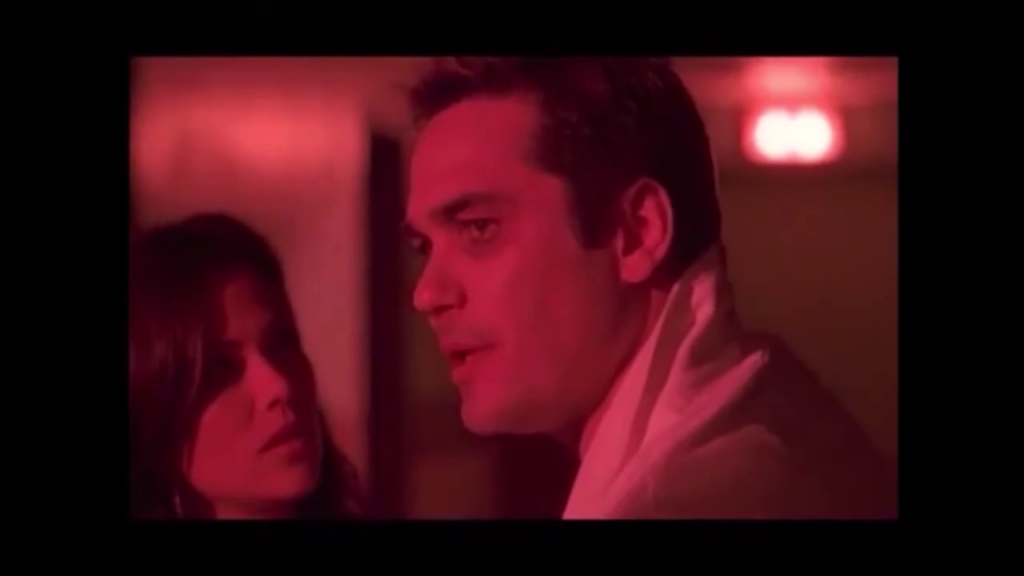
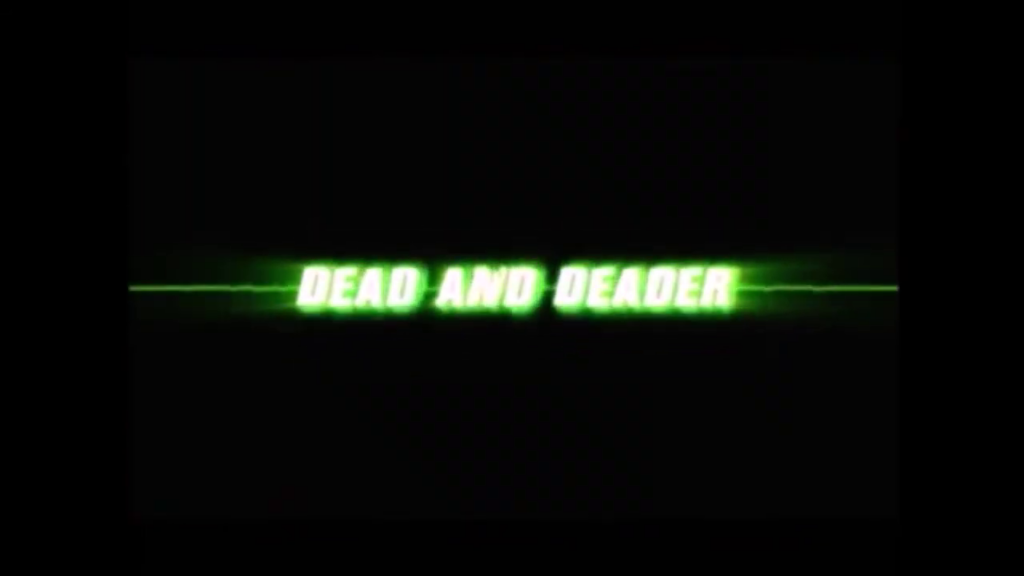
Dead and Deader (2006)
Film review #637
Director: Patrick Dinhut
SYNOPSIS: A special forces squad is sent to investigate the loss of communications with a medical outpost in Cambodia are all killed after they are attacked by zombies. Lieutenant Bobby Quinn is one of the soldiers, but wakes up on an autopsy table after his body was taken to a U.S. army base. Now possessing superhuman strength and presumably whatever infection created the zombies, Quinn must find the other bodies of the soldiers killed alongside him before they awaken and infect anyone else…
THOUGHTS/ANALYSIS: Dead and Deader is a 2006 TV film. Bobby Quinn (Dean Cain) wakes up on an autopsy table, having been declared dead on arrival after a mission to a medical outpost in Cambodia killed him and his team when they were attacked by zombies. It turns out that Quinn has the same infection that the zombies have, and must eat red meat to avoid becoming one himself. Learning that the bodies of the rest of the squad have been shipped home, he must put a stop to them before they become zombies themselves and infect the population. Joined by the base chef and a local bartender, the film throws plot out the window, and just fills itself with explosions, cheap humour, and gore; lots and lots of gore. In fact, it is quite surprising just how much violence and blood there is in this made-for TV production. From Quinn cutting his arm open to release a live scorpion form it, to the dismemberment of zombies in every which way, it gets away with a lot of bloody violence. While this is probably the only thing the film has going for it thanks to a middling story and characters that are just cheap imitations of other more successful ones, the film is actually better than you might expect: it is at least creative with it’s gore, and it never gets hung up on boring details. I suppose this is important in made-for TV films so viewers don’t just swap channels. It knows it needs to hit certain low bars, and it does so without much fanfare. The fact that it does so keeps it from falling into being boring or too hokey.
Despite the potential for a mass zombie outbreak, the film is strung together with cartoony characters and typical one-liners that will have you groaning in begrudging acceptance that they have to be in there. There’s also quite a few references to other science-fiction franchises dotted about that are clearly for its audience, and the inclusion of Armin Shimmerman, who played Quark on Star Trek: Deep Space Nine. Dead and Deader never evolves beyond silly, gory fun, but on this point it seems to do surprisingly well, not falling into a rut at any point, and keeping itself entertaining and surprising with how far it’s willing to push the gore. The plot never evolves beyond pure stupidity, but it knows what it is, and I suppose can be excused. Not a good film, but watchable and reasonably entertaining.
-
#636 – Zoe (2018)
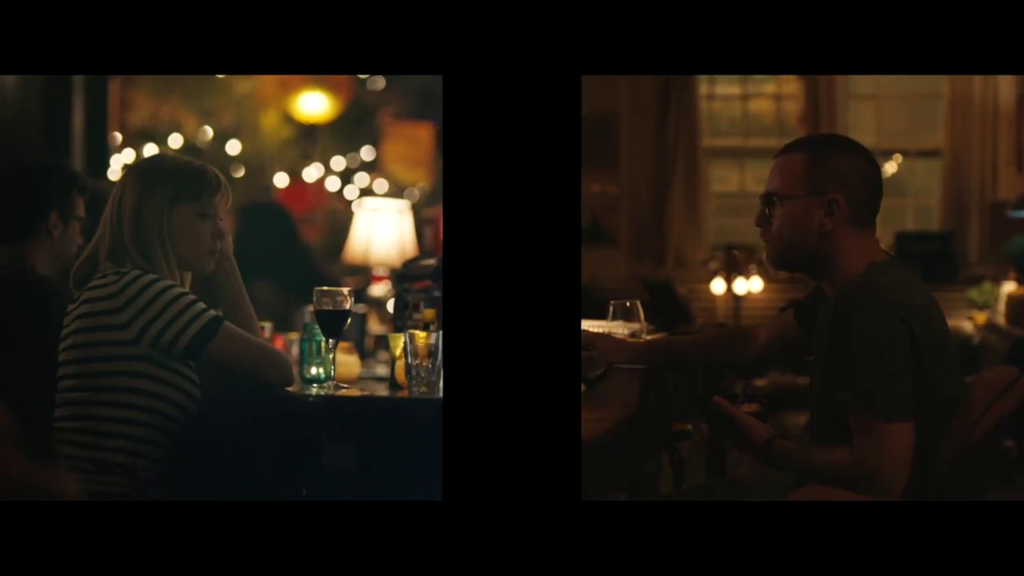
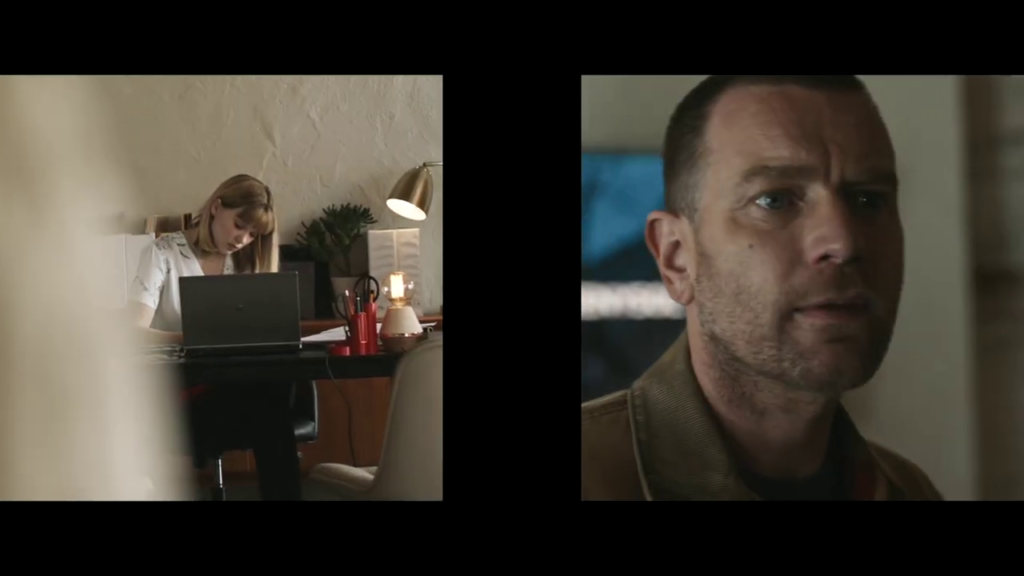
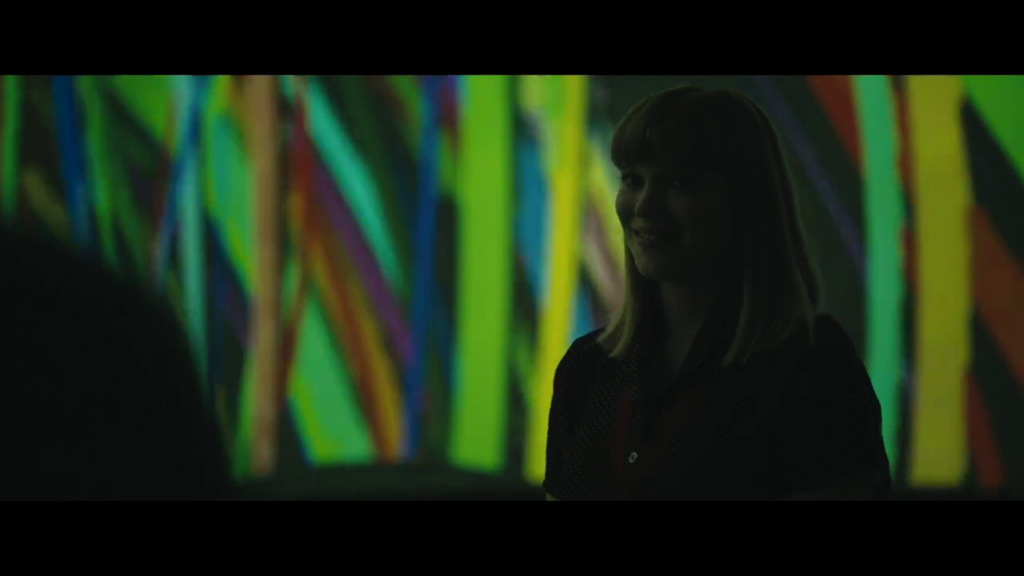
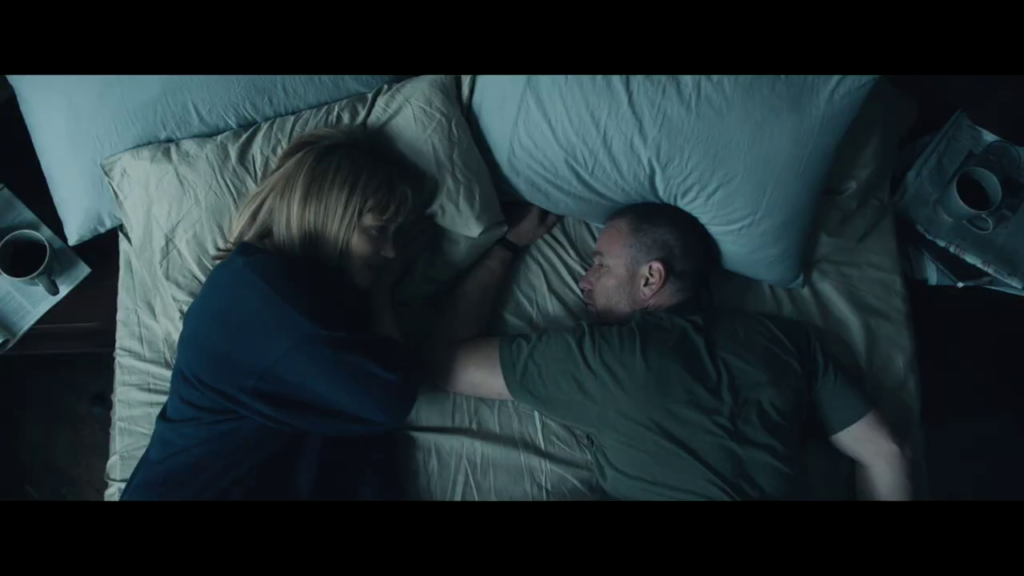
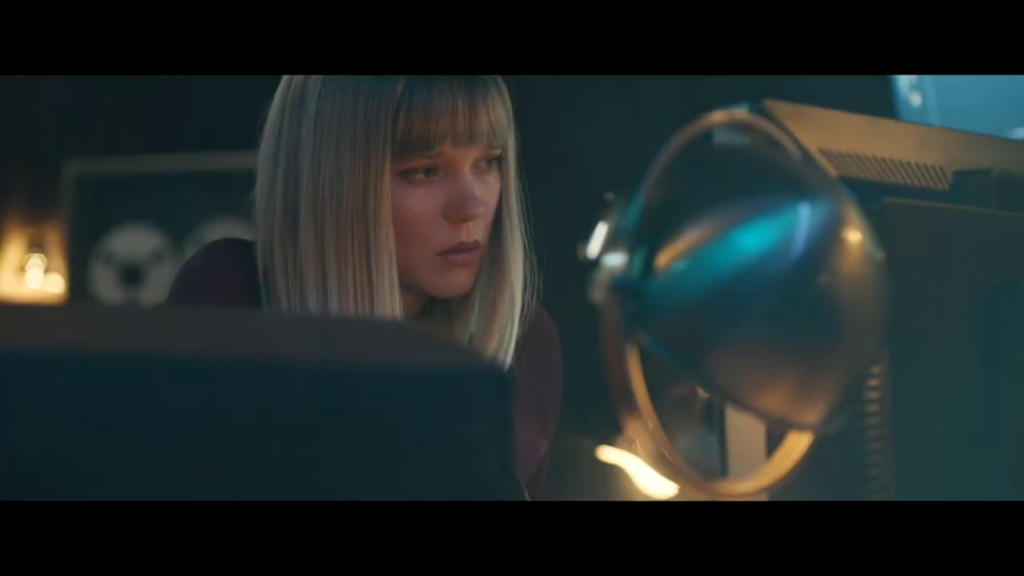

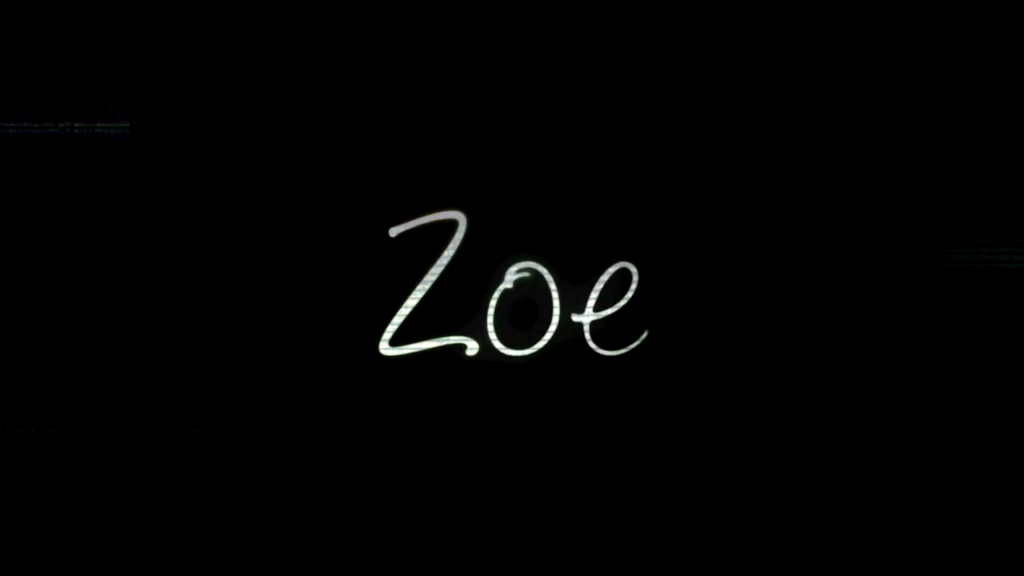
Zoe (2018)
Film review #636
Director: Drake Doremus
SYNOPSIS: In the near-future, a company is developing robots that serve as companions to humans, and also a surefire compatibility test to see whether people are made for each other or not. Zoe, who works at the company, takes the test to see whether she is compatible with her co-worker Cole, with whom she scores 0%. It turns out that Zoe is actually an android herself, but can love still bloom between her and Cole?
THOUGHTS/ANALYSIS: Zoe is a 2018 sci-fi romance film. A company in the near future is developing new frontiers in romance: human-like androids that can serve as companions, a drug that makes people feel like they’re in love temporarily for the first time, and a compatibility test that determines people’s romantic suitability for one another. Zoe, an employee of the company, runs a compatibility test on herself and another employee Cole, and it turns out to be 0%. She then learns from Cole that she is, in fact, an android, so will always score 0% with anyone. regardless, she starts a romantic relationship with Cole, and tries to make it work. The film takes on the typical and well-worn ideas of whether androids can love and such without much fanfare or a unique take on it. Combined with the aforementioned elements of the love drug and relationship compatibility test, you’ve got a blender of concepts that overlap with each other, and also fail to establish any depth to them as the backbone of the film. Zoe’s learning that she is an android provides a quite underwhelming response from her, and is not the interesting twist it could have been: it feels like the film just needed to get it out of the way so it could move on to the romance element, which actually does serve as the film’s spine. her insistence that robots can’t love because it’s all “zeroes and ones” is certainly challenged when she makes the discovery about herself, but again, it is lost beneath a heap of thing things.
The romance, again, is a bit muddled and doesn’t really offer anything significant or unique. One of the biggest problems I had was that Cole just isn’t a likable character, and is pretty awful really. The film does try to frame this as love being difficult and messy, but it reflects more on the messiness of the film rather than the characters, as there’s just not an intensity on screen between the actors, as every scene is mostly just hushed dialogue that fails to convey what it wants. There’s definitely some good ideas in here that could have been developed more roundly, but as they are, they fall flat. The ending offers an interesting twist, with it being left open whether the Zoe that Cole reunites with is the “real” Zoe or another android simply programmed to be her, but it’s delivered in such a slight manner that it doesn’t give space to interpret the significance of it. Overall, I can’t have too much good to say about Zoe: there’s too many different angles with too depth in the ideas department, the romance lacks the emotional impact, and it just never really hooked me at any point.
-
#635 – Battleship (2012)

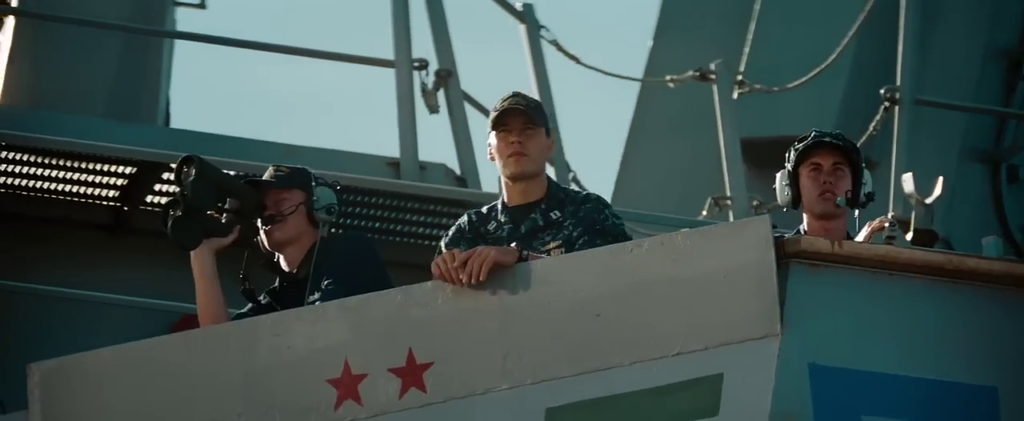

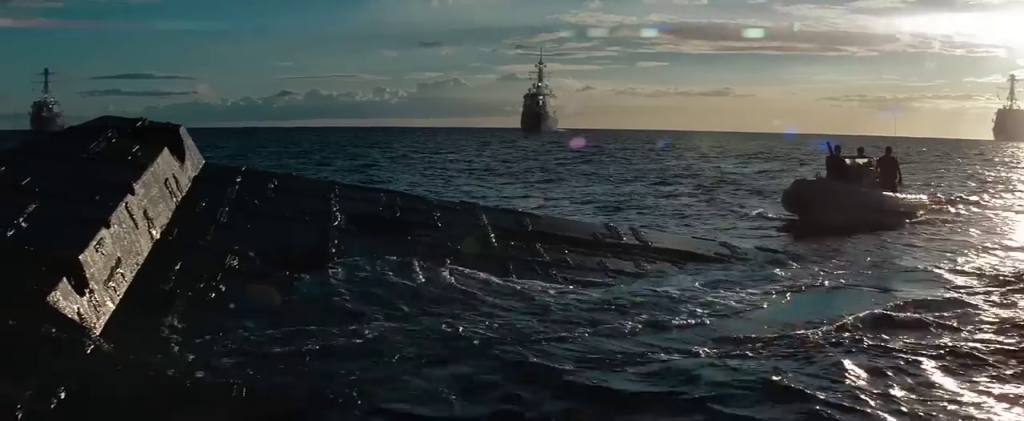

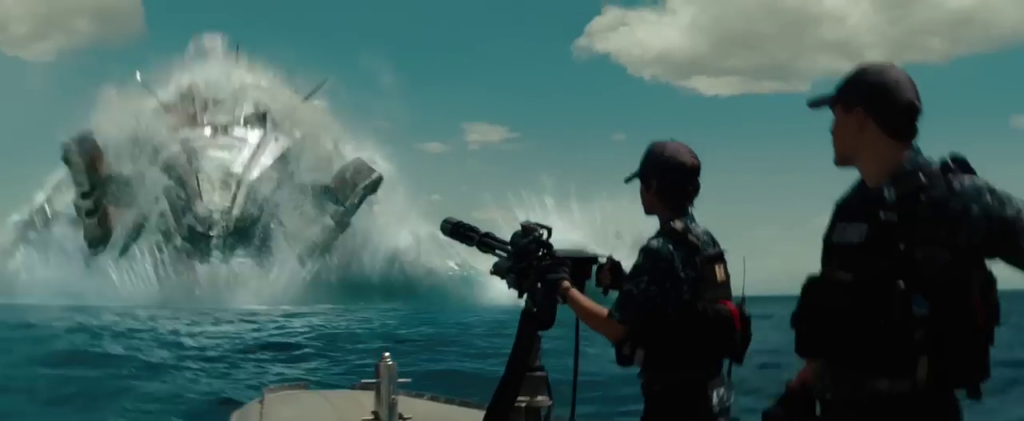
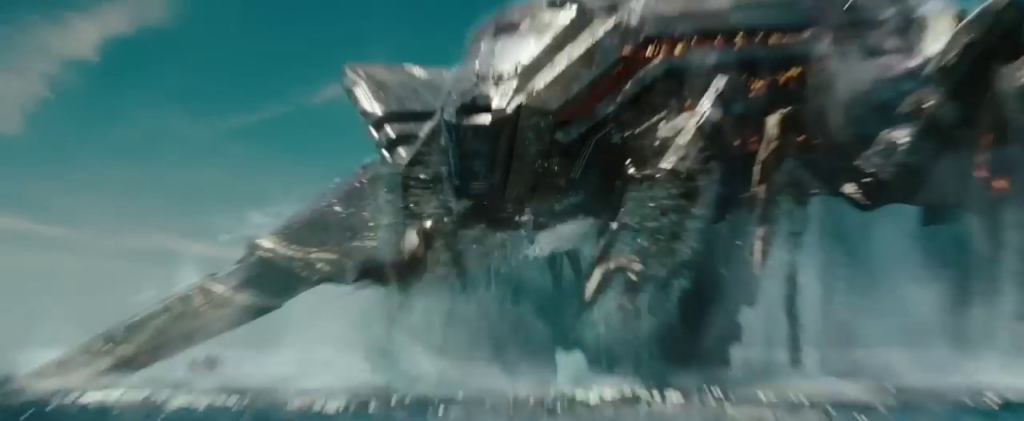
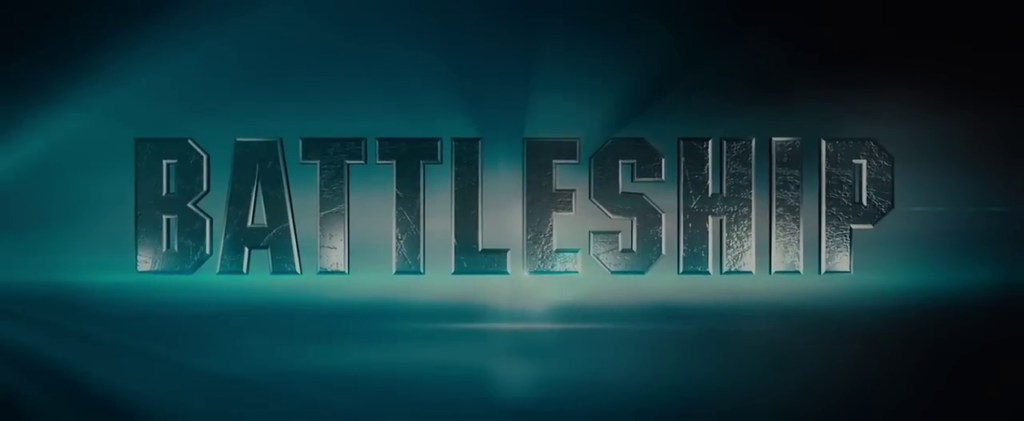
Battleship (2012)
Film review #635
Director: Aldo Iuliano
SYNOPSIS: During a military training exercise between U.S. and Japanese naval forces, an alien object crashes to Earth which is the precursor to an invasion. Setting up an energy field that cuts off all contact, the remaining ships must work together to prevent the aliens from calling for reinforcements…
THOUGHTS/ANALYSIS: Battleship is a 2012 sci-fi film, and yes, it is based on the classic Hasbro game. Alex Hopper, a down and out loser is forced into the navy by his brother. Some years later, the joint military training exercise between the Japanese and U.S. Navy is interrupted by an alien object falling to Earth. Damaged in the fall, it aims to take control of a nearby satellite array to call it’s home planet for reinforcements, unless they are stopped. After colossal losses, Alex is left in command as all communications are cut, and the survivors are left to work together to stop the alien threat. The premise sounds simple enough, although adding in an alien threat to the traditional Battleship game is an odd twist. It should be simple though: battleship is one of the most simple games to pick up and play. Here’s where the film makes its big miss: it is unnecessarily complicated in all aspects. The runtime is far too long (just over two hours), there’s too many things happening at once, the character’s (some of them anyway) attempt to have a story arc, but are often buried beneath everything that is going on. The part of the film which I suppose is meant to resemble the actual game is set up in such a complicated manner so that each side can’t see the other, that I couldn’t for the life of me explain how it was all working, and just accepted they were playing real-life battleships. Once this scene is over, it just moves on to the next set piece, and repeat ad nauseum until the film is over. There’s no real sense of flow to everything that is happening, and just feels like a bunch of ideas thrown together.
There’s some attempt to try and make a hero of the main character Hopper, who must quickly grow up when he becomes the most senior commanding officer on the ship. However, this never really materialises in any substantial way. The romance element is also rather shallow, as Alex and his love interest Sam barely interact with each other during the movie, only to set up a problem at the beginning, and resolve it at the end. Rihanna takes a small role where she does very little other than shout a few words to verbalise what is going on, so her appearance isn’t too distracting (at least it’s not as forced as in Valerian and the City of a Thousand Planets). There’s not much point in delving into the intricacies of the film though, as everything is quickly swept away when the big alien ships and battleships start shooting and blowing each other up. Honestly, this is where the film starts to redeem itself, as you’ll quickly forget about all the pointless diversions and attempts at a story as things start to kick off. The effects are fairly decent, and the alien ship designs are pretty cool too. When you switch off from all the extraneous nonsense, the film is entertaining enough for a summer film, but the question remains just how should should you need to detach yourself from logic and rational thought to enjoy something? Battleship certainly pushes the boat out in attempting to see just how much it can get away with without revealing the shaky foundations lurking below the surface.
-
#634 – Space Monkeys (2022)
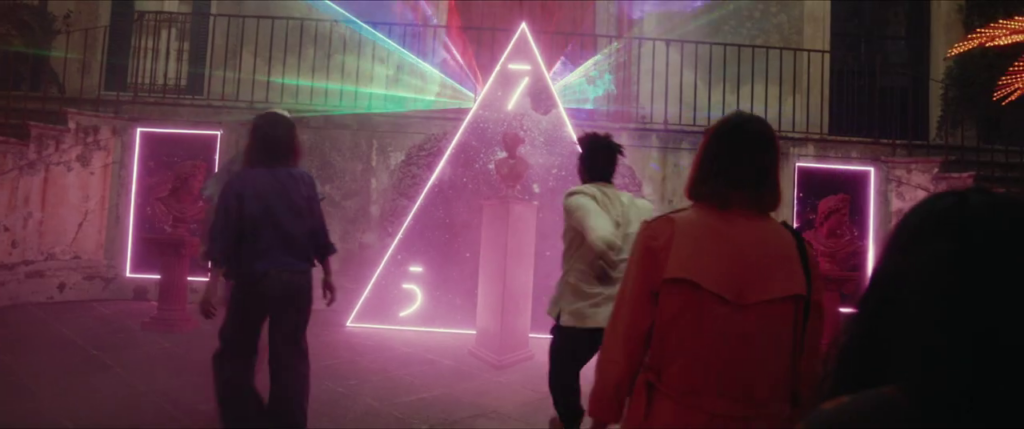

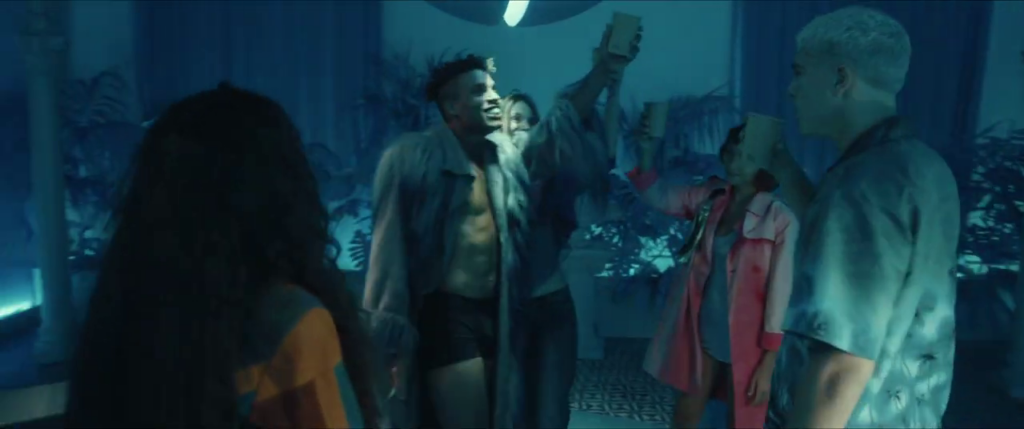
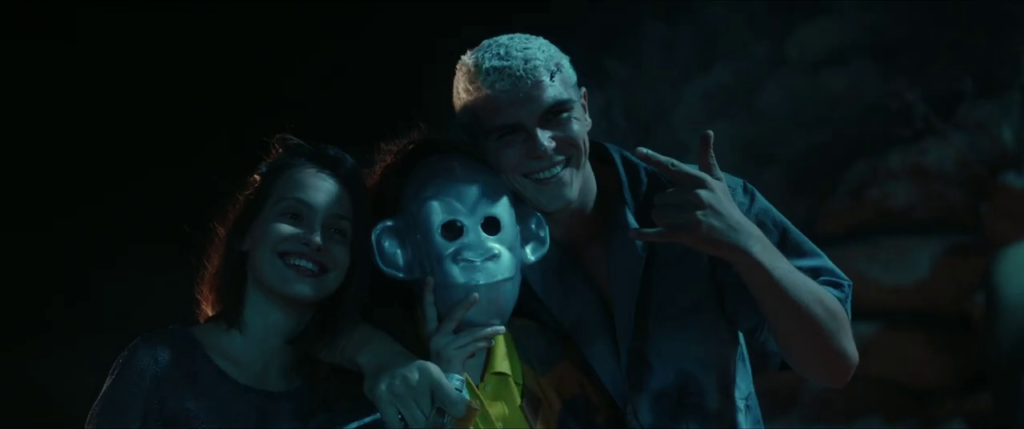
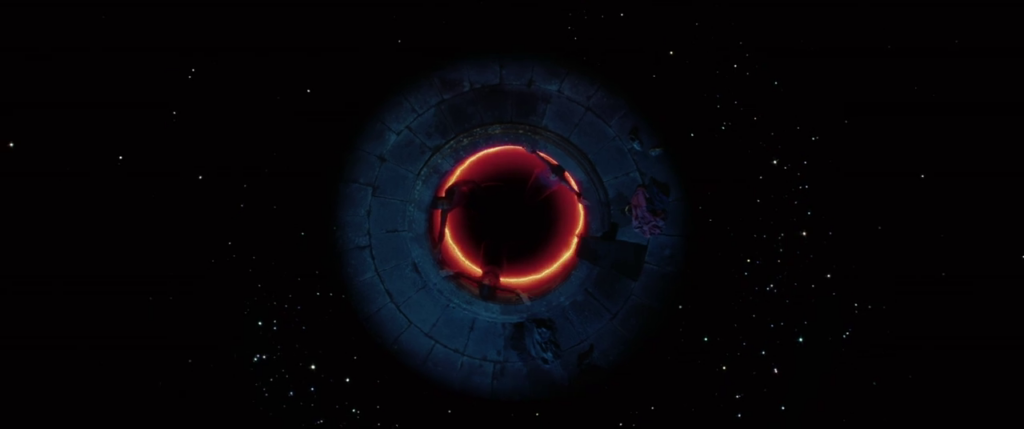
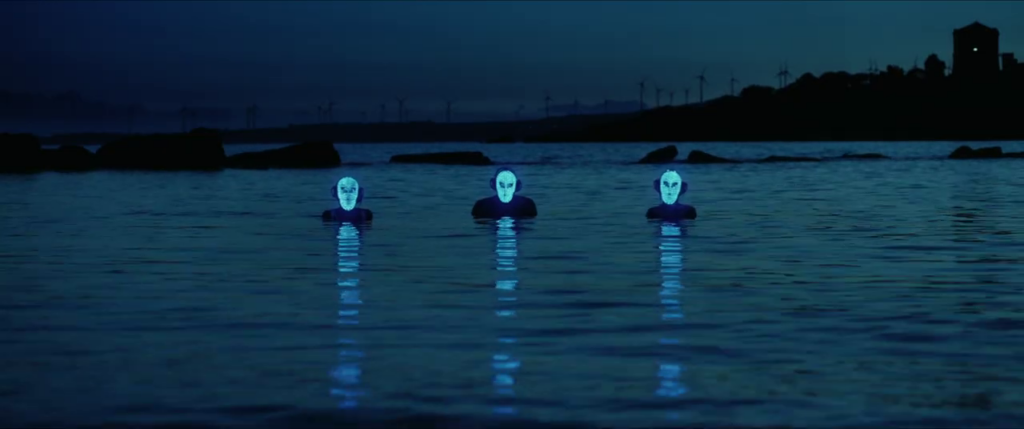
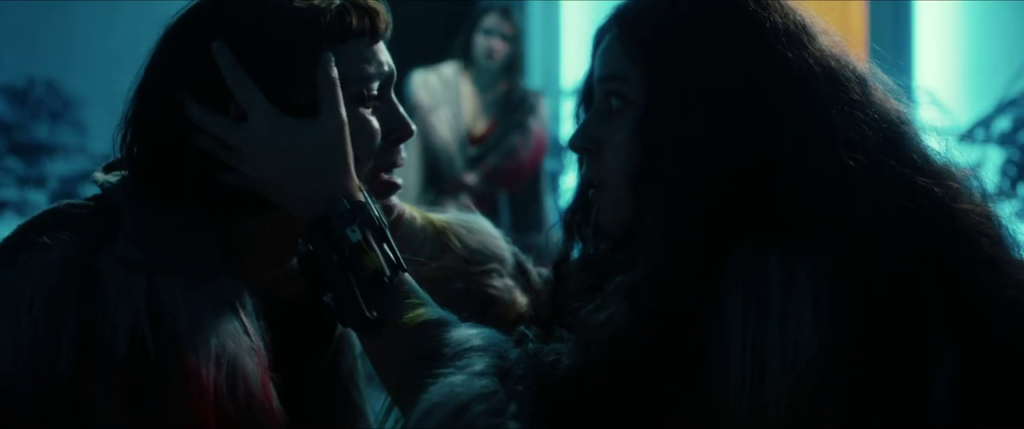
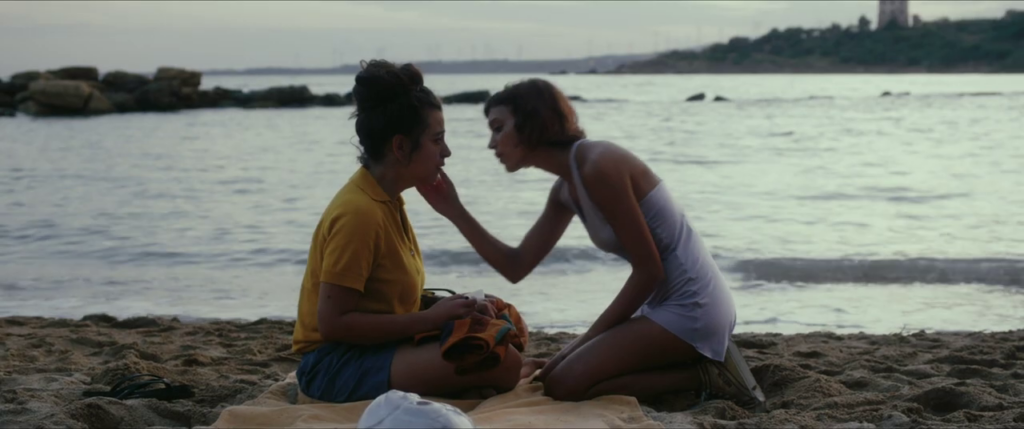

Space Monkeys (2022)
Film review #634
Director: Aldo Iuliano
SYNOPSIS: Five affluent teens are throwing an end-of-summer party. Moving on to one of the teen’s houses while his parents are away. They use the house’s A.I. to participate in increasingly extreme drinking games, but a tragic turn of events forces the youths to reflect on events and themselves…
THOUGHTS/ANALYSIS: Space Monkeys (Also known as Code Terror) is a 2022 Italian film. Centred around five affluent teens who are throwing an end-of-summer party, they visit the home of Stefan, one of the teens, who shows them around this bizarre home full of weird aesthetics and a home A.I. named Able, who controls the functions of the abode. Stefan gets Able to concoct a series of increasingly extreme drinking games, pushing the teens to their limits. The setup for this film is a bit of a horror and sci-fi one: A group of young, unlikable teens get trapped in a house with an A.I. that tries to kill them….that’s what I thought the film was about based on the trailer anyway. The only thing to say about the first half of the film is that it serves simply to make the five teens seem as unlikable as possible: they’re either obsessed with their social media, arguing with each other, or pushing each other to do stupid things. Stefan, in particular, is such an odious and annoying personality it’s difficult to tolerate his presence: seriously, he says some very nasty things. Marta is the only one who seems to have any sense of reason, but that just begs the question why she is friends with the rest of them anyway. I was waiting for the film to actually begin, but as mentioned, the first half is just constant drinking, arguing, and stupid pranks that never seems to end, and you’re left wondering what you’re doing watching this, or when something of purpose is going to happen.
At the halfway point of the film – almost down to the very second – we get the film flipped on its head and finally a sense of direction, as Stefan dies from a choking prank gone wrong. Finally, the free-loving have to confront reality, as they have to deal with what to do with Stefan’s body. The film continues to be as sporadic as the first half, with no real direction and the characters just aimlessly wandering about; which is somewhat to be expected given the circumstances and the fact that they have never dealt with anything like this before in their sheltered lives. There’s a hint of the film wanting to do a The Breakfast Club style intervention for Gen Z, but that just doesn’t work because we don’t know any of the characters, and they don’t really confront themselves or their relationship with any of the others: one of the characters just wanders off and doesn’t come back until near the end. With The Breakfast Club, the characters were forced to confront themselves through each other, interacting with people they wouldn’t normally, and learning about themselves and others. In Space Monkeys, there’s a distinct absence of any of that. The only character that seems to deal with the situation is Marta, but we still don’t get much of an insight into her character to really get involved with the dilemma she or any of the others are facing. The film’s setup with the whole A.I. trying to kill them and whatnot just…evaporates into nowhere as well, and we’re left wondering just what the point of it was. I don’t know if I was supposed to feel bad that Stefan was dead by the end, but I really wasn’t: he was absolutely insufferable.
There’s obviously some intention behind the way the film is structured: the way the film flips at exactly the halfway point is meant to shock these carefree youths with reality, and there’s a number of scenes where the camera is purposefully placed at a specific angle to frame things, but again, there’s no real substance to anything, nothing to interpret, and no maturity in any of the characters. The film ends abruptly with the four abandoning their plan to say that Stefan died on his own without them being there, and just calling the police to tell them the truth, which I suppose is meant to show them taking responsibility; something which wasn’t earned in their aimless wandering through the film, and it just makes the whole thing just seem like a waste of time. Any attempt at redemption of these characters fails because the film goes so far and hard in the first half to make them unlikeable. By the time the film tries to turn it around, it’s too late to dig itself out of the hole it has made for itself. A glint of intention behind a directionless mess, Space Monkeys fails to get to grips with it’s characters, and any attempts at redemption and confronting reality through the events that transpire are far too inadequate due to the sizeable hole the film digs itself into by making the characters as obnoxious and unremarkable as possible.
-
#633 – I Am Ren (2019)






I Am Ren (2019)
Film review #633
Director: Piotr Ryczo
SYNOPSIS: Renata is living with her Husband Jan and their son Kamil. Jan returns home one day to find their house a mess and Renata collapsed on the floor. They go to a counselling retreat for Ren to recover, and she tells the psychologist that she is Ren, an android that is suffering from a malfunction, and is fearful that she is going to be replaced…
THOUGHTS/ANALYSIS: I Am Ren (Also known as The Glitch) is a Polish sci-fi film. Renata is found collapsed one day at home by her husband Jan. They and their teenage son Kamil go to stay at a counselling retreat to try and cure Renata, but she believes that she is an Android that is malfunctioning, and she will be shut down and replaced because she is defective. The central theme of the film is seemingly whether Ren is telling the truth: that she is an android, or she simply believes she is, and is part of a big delusion. That’s the point anyway, but the major problem with the film is that I just didn’t see that conflict. The film clearly shows that she is meant to be an android; from the opening where something moves under her skin voluntarily, to the barcode on the bottom of her foot, and her overhearing conversations about how she might have to be shut down, there’s not really much room left for ambiguity on this central point. you could make the argument that all of these things are simply delusions based on whatever mental illness she is experiencing, but again there’s no space to really question her experiences.
A lack of any emotional depth really compounds the issues described above, and it’s difficult to tell just what anyone is thinking and feeling in response to the situation. For example, there’s a lingering question over whether her son’s injuries were caused by her, or inflicted on him by her husband, and the film tries to avoid giving away whether he is concerned for her, or being emotionally manipulative and abusive. The lack of emotional depth in the performances lends itself to this ambiguity, but also flattens any tension and drama, and just ends with me not really caring about what’s happening. The film is composed mostly of scenes of dialogued whispered between characters, and it’s easy to get bored with nobody just speaking properly, or giving any of said dialogue emotional weight.
The ending again, undoes the ambiguity that the film is trying to convey, and while you might expect it to provide an answer, it just tells you what you already know: Ren is an android, and there was never really any reason to doubt her, particularly when everyone else was acting suspiciously throughout the entire film. With a runtime of seventy minutes, at least the film doesn’t drag on too long, but it still feels like it runs out of ideas long before the credits. There’s really not much to recommend in I Am Ren: it’s a simple idea that should be easy to implement, but fails to build the necessary framework to explore it’s ambiguities. Dull performances, stretched out dialogue, and a sameness in all of the scenes provides very little that stands out.
-
#632 – Replicas (2018)
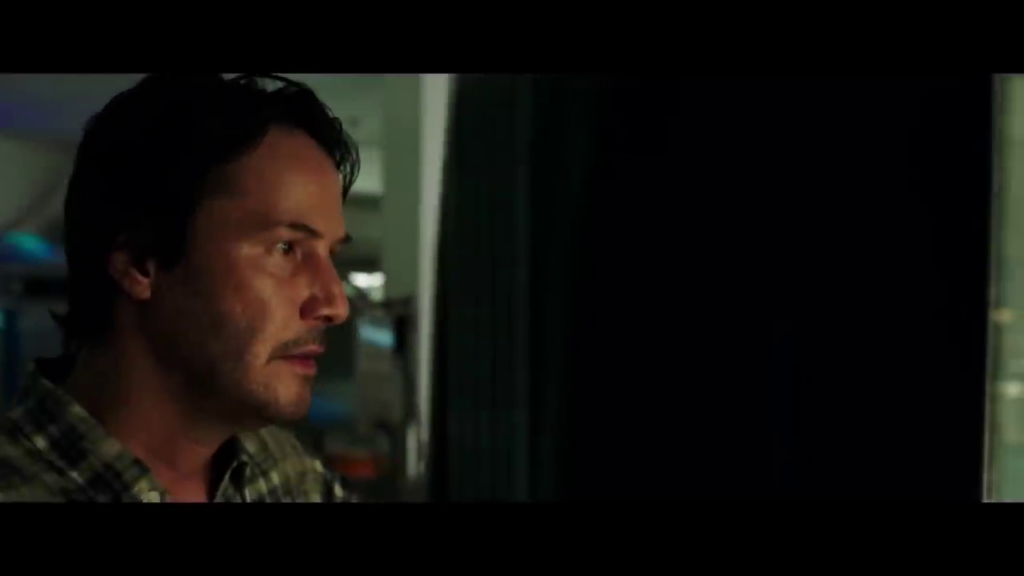
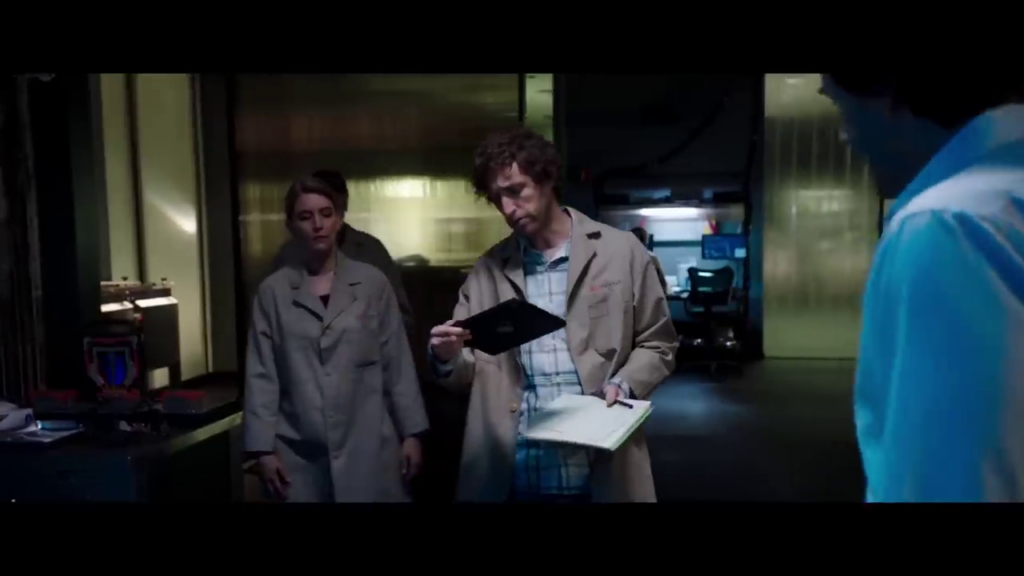
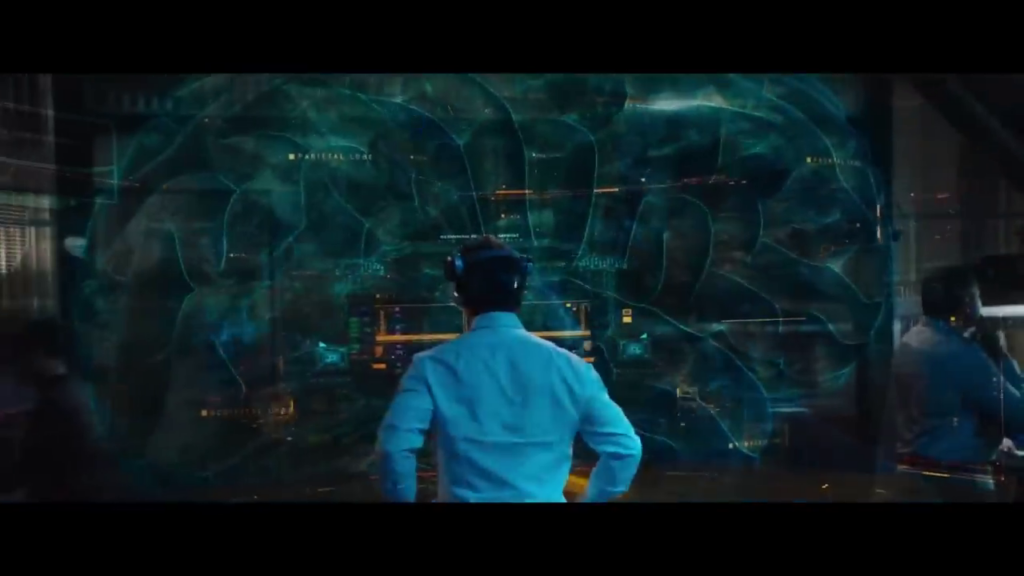
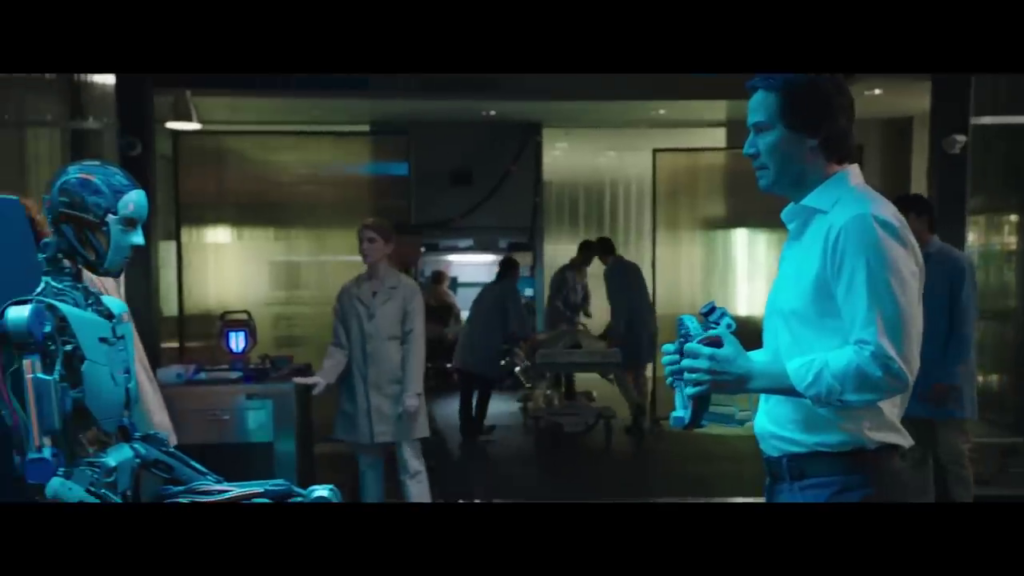
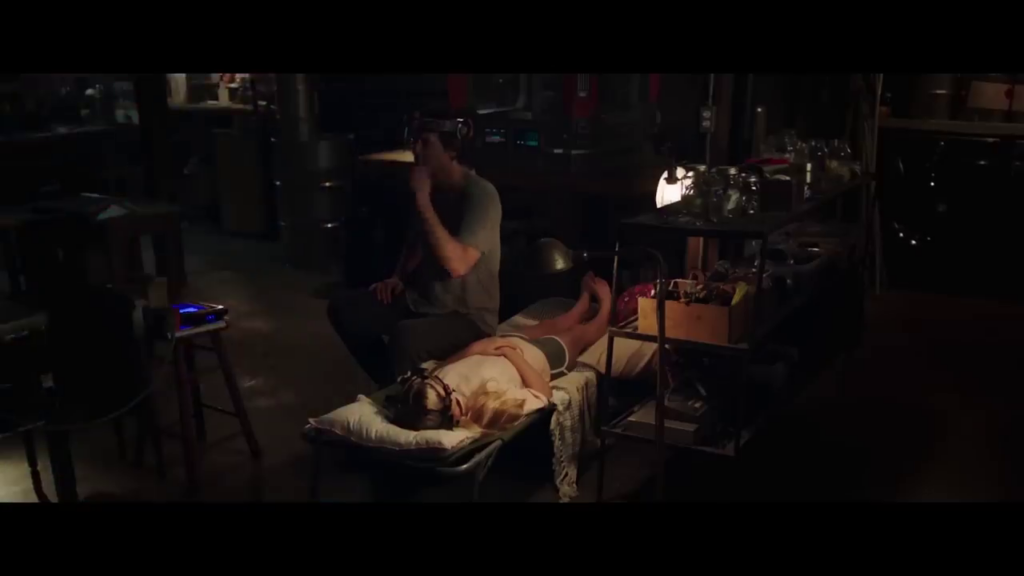
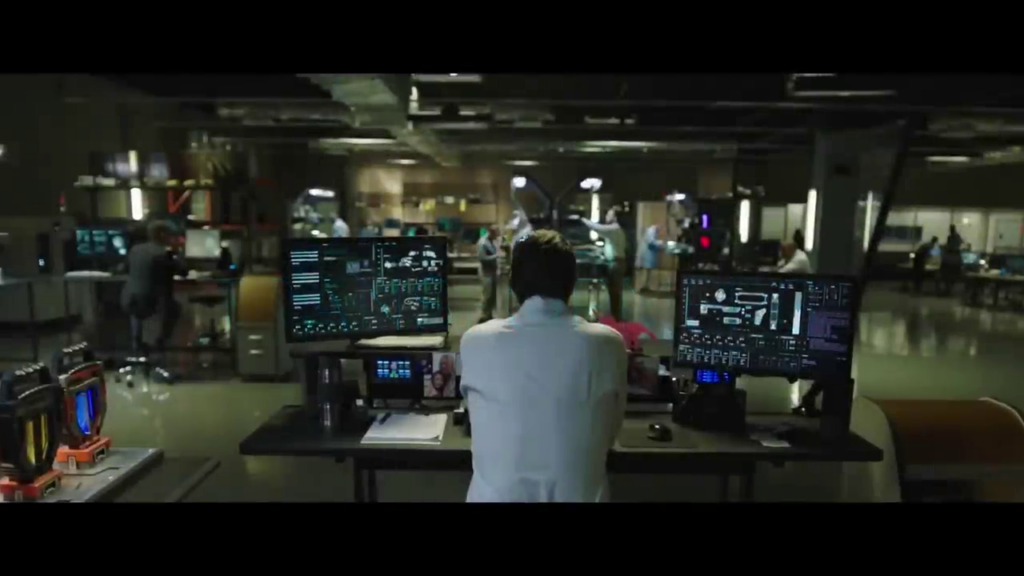
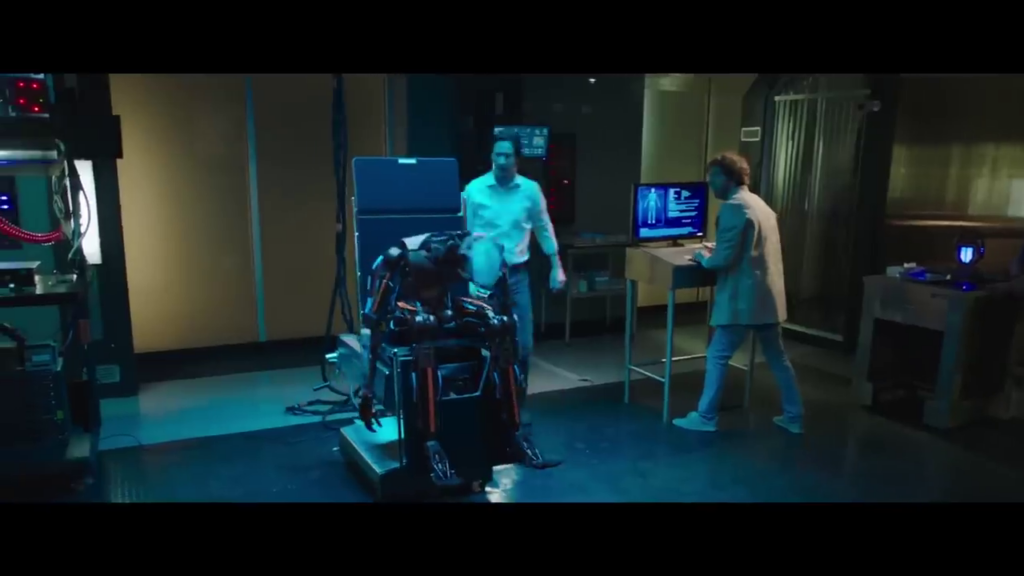
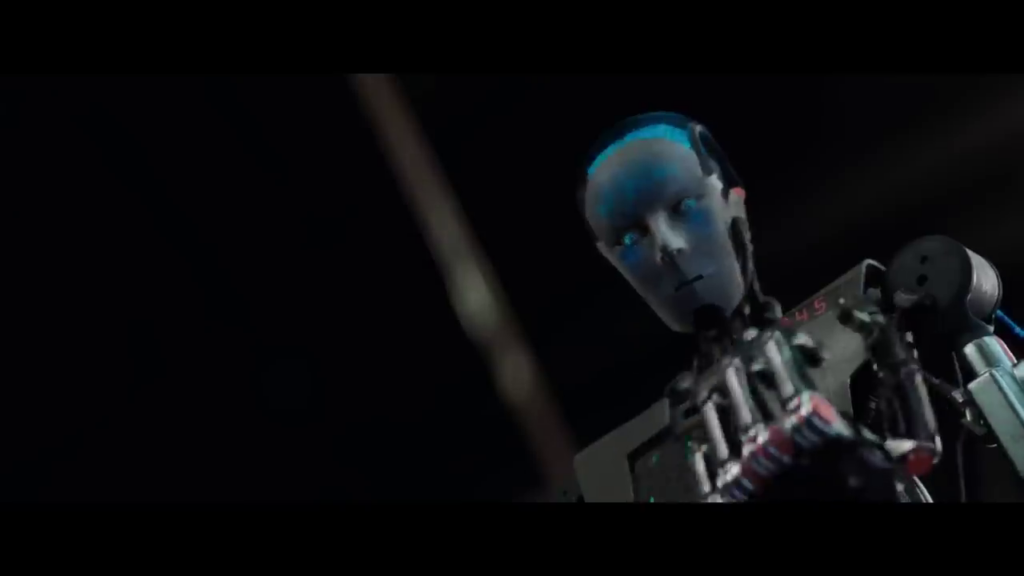
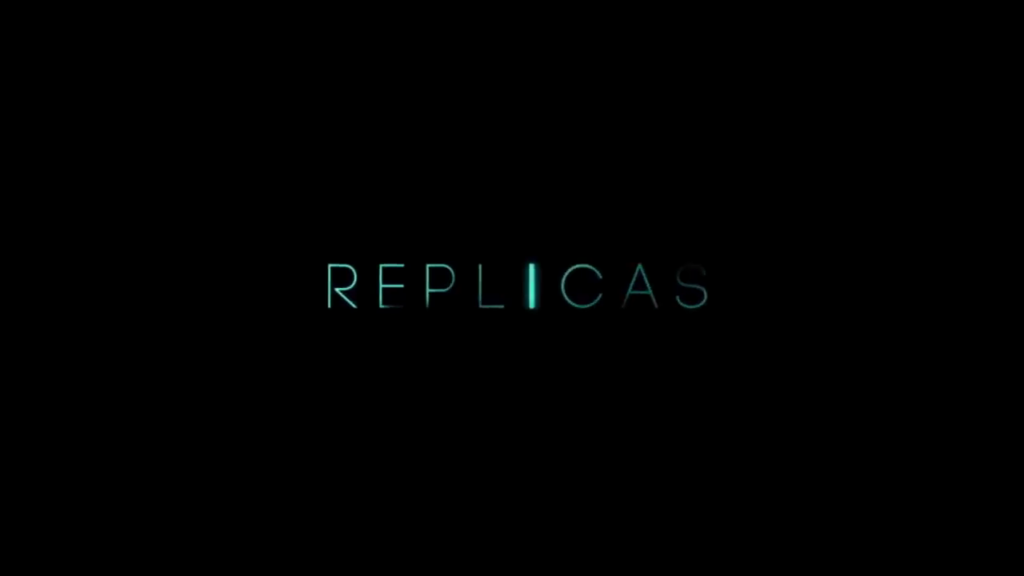
Replicas (2018)
Film review #632
Director: Jeffrey Nachmanoff
SYNOPSIS: William Foster is a scientist working on a project to transfer the consciousness of a person into an android body. When he is involved in a car crash with his family and he emerges as the only survivor, he decides to bring them back using his research of transferring consciousness, combined with cloning research being undertaken by his colleague. With the experiment a success, Will’s attempts to keep the secret from his family becomes ever more difficult, and when his employers find out about them, they see them as nothing more than experiments and test subjects, and Will must fight to save his family…
THOUGHTS/ANALYSIS: Replicas is a 2018 sci-fi film. Starring Keanu Reeves as Will Foster, a scientist who is working on a project to transfer human consciousness into an android body. Unable to figure out the final part of the problem, he is on the verge of losing his funding. During a drive, Will and his family are involved in a car crash, which kills his wife and three children. This leads him to come to the decision to copy their consciousness and to enlist the help of his colleague Ed Whittle, who works in cloning, to create new bodies for him to upload their consciousness too. If you think that’s an absolute mess of a premise, and a a bit of a stretch that the one guy who is working in uploading consciousness just so happens to have his own family killed in the most cliché car-crash-over-a-cliff-on-a-rainy-night. That his next step after dragging them out of the water is to think about cloning them new bodies is a bit of a stretch, and just makes him seen deeply unhinged, and not really the kind of guy you should be rooting for. I get that after such an event he is probably not thinking rationally, but the way he immediately comes to this decision without him ever having any success really just doesn’t flow narratively. Thematically, the way the film just jumps from androids to cloning is a bit disjointed too: you could easily just pick one or the other, but here they’re just put in a blender and thrown about all over the film, never approaching either subject with consideration or depth. You could certainly make a film that deals with the concepts of mind (consciousness) and body (cloning), which I think is maybe what the film is trying to do, but it nowhere near makes any kind of point on it.
Will erases the parts of his family’s memories of the crash, so they don’t remember, and because he only has three cloning pods and can’t clone their youngest daughter, has to erase their memories of her as well. This is where the plot-holes start to really pile up, as Will has to wipe out all trace’s of his Daughter’s existence. He can perhaps erase the memory of his family members by deleting parts of their memory, but what about everyone else that knew her? Her school? There is no way he could have thought this was going to work, and the film barely addresses it. Again, we have to accept he is not exactly thinking rationally, but the fact that he does attempt to account for his family’s absence by contacting their schools, employers etc. shows that he is aware of the problem. It just seems that the film ignores the huge task it opens up to itself with this.
Keanu Reeves is not the ideal lead for this sort of film: if you’re not going to adequately dive into the philosophical issues surrounding cloning, consciousness, evading death and the like, then you need to be able to deliver an emotional impact and show the grief that the lead is going through having lost his family. Unfortunately, Reeves just cannot deliver that level of an emotional performance. Combined with his wholly illogical and unhinged behaviour, and it makes it difficult to root for him or understand what is going on in his head. The finale of the film has Will and his family on the run as the company Will works for wants his family eliminated, as they are experiments that have fulfilled their usefulness. This whole action sequence just feels unnecessary too; there’s no build up to this, or any similar sequence earlier in the film, so it just comes out of nowhere. It tries to build up to something, then just…stops, as Will and the villain reach a deal, and everyone just lives happily ever after. After the absolute mess of the film and Will’s absurd decisions, the fact that everything’ ends well is perhaps the biggest leap of all. The CG is all really bad too: as the android moves about in such an awkward way there’s no way you’ll believe the actors are actually interacting with it.
-
#631 – The Mist (2007)
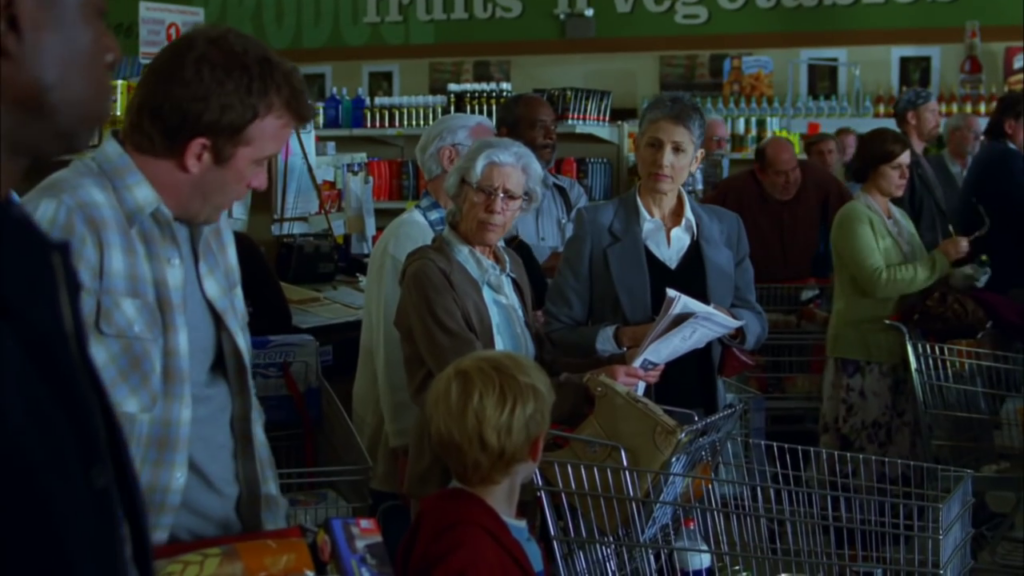
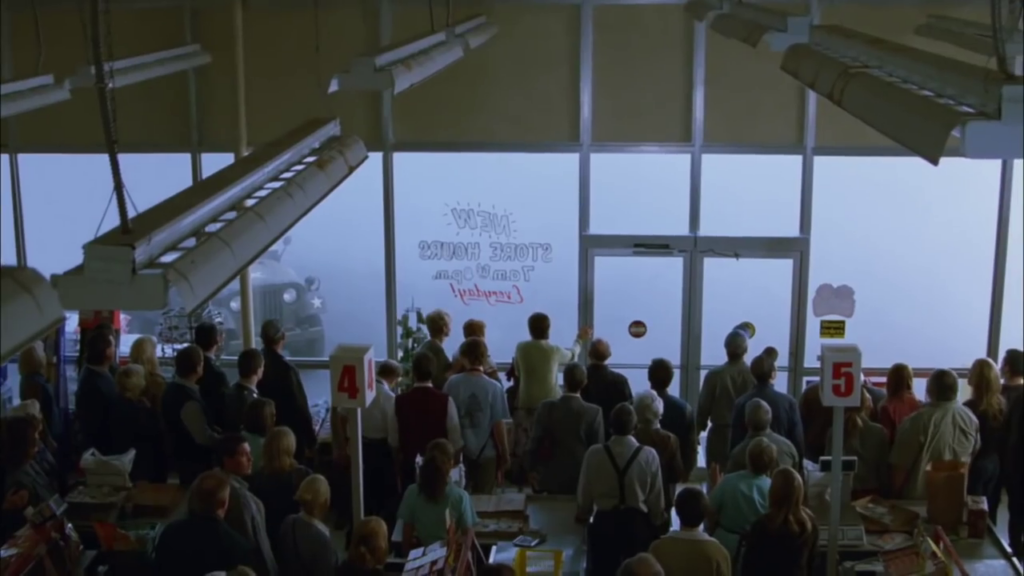
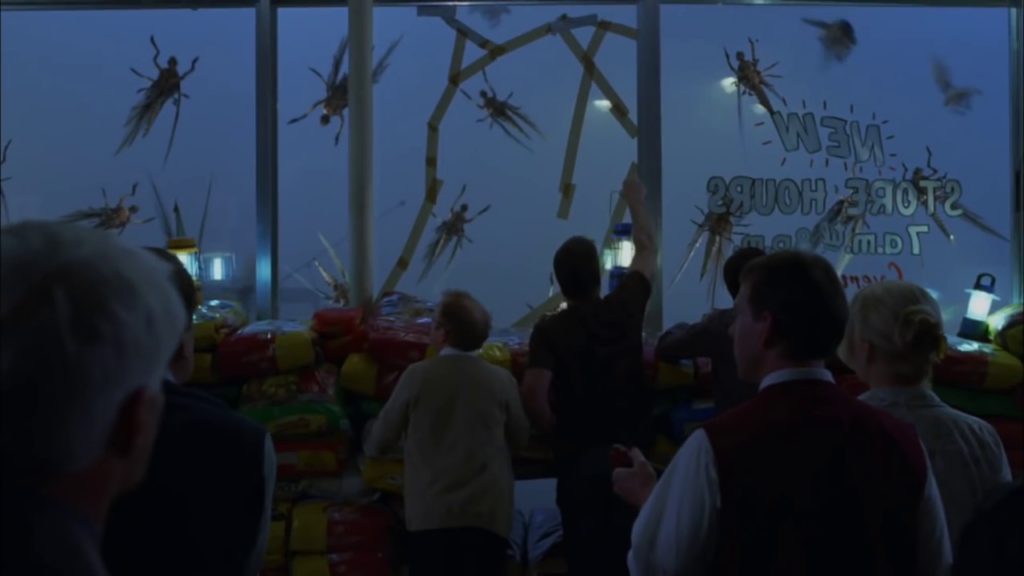
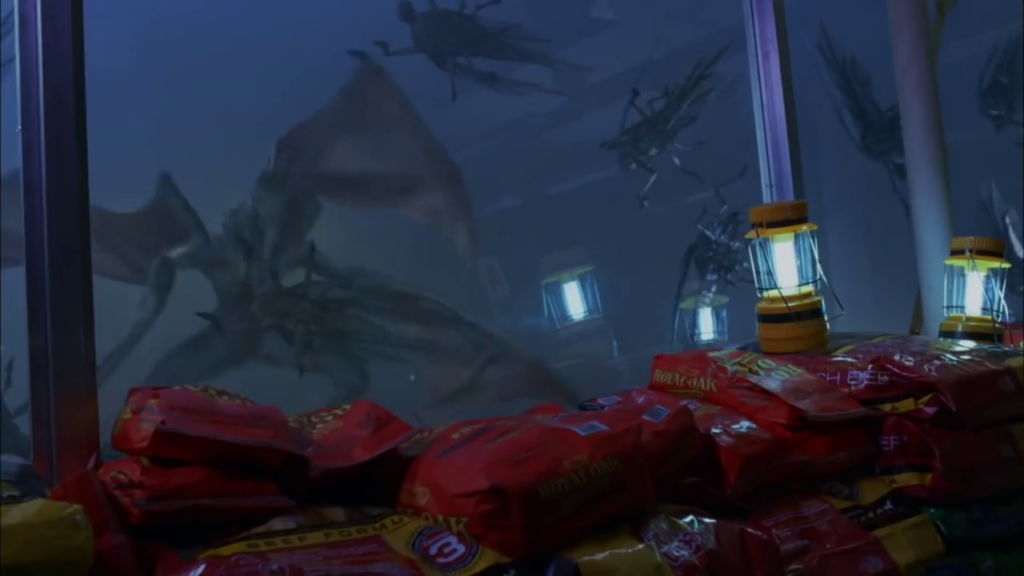
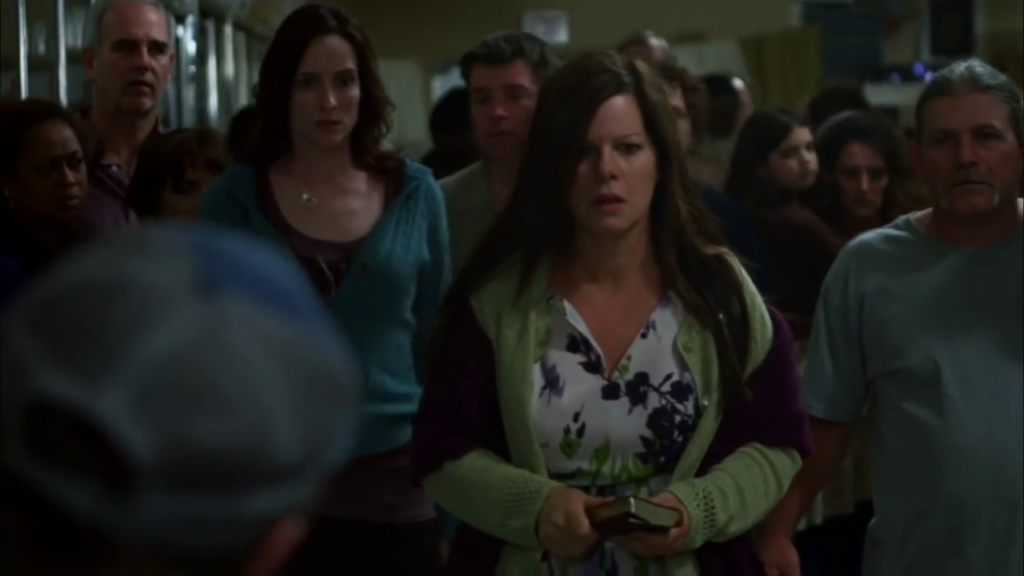
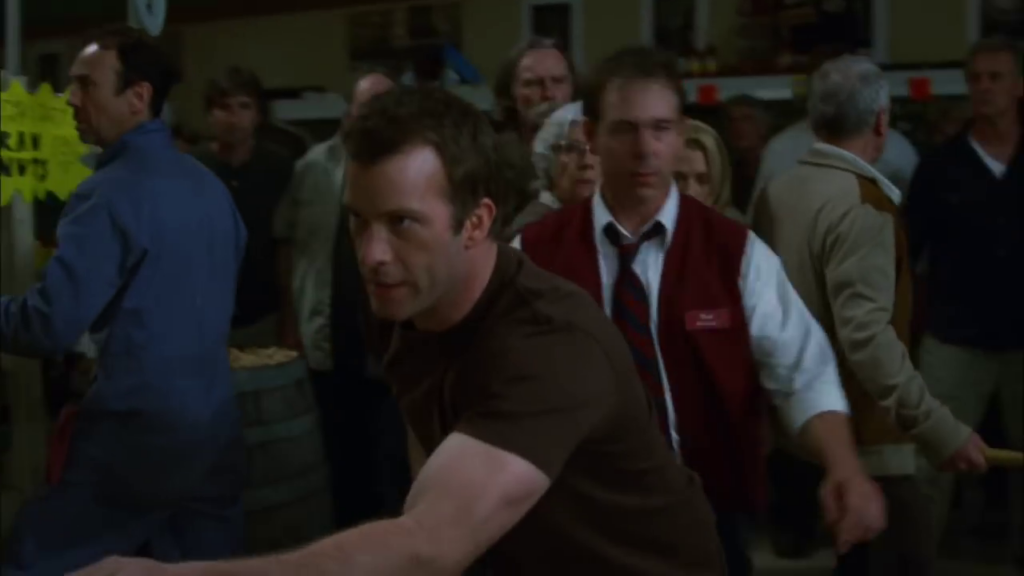
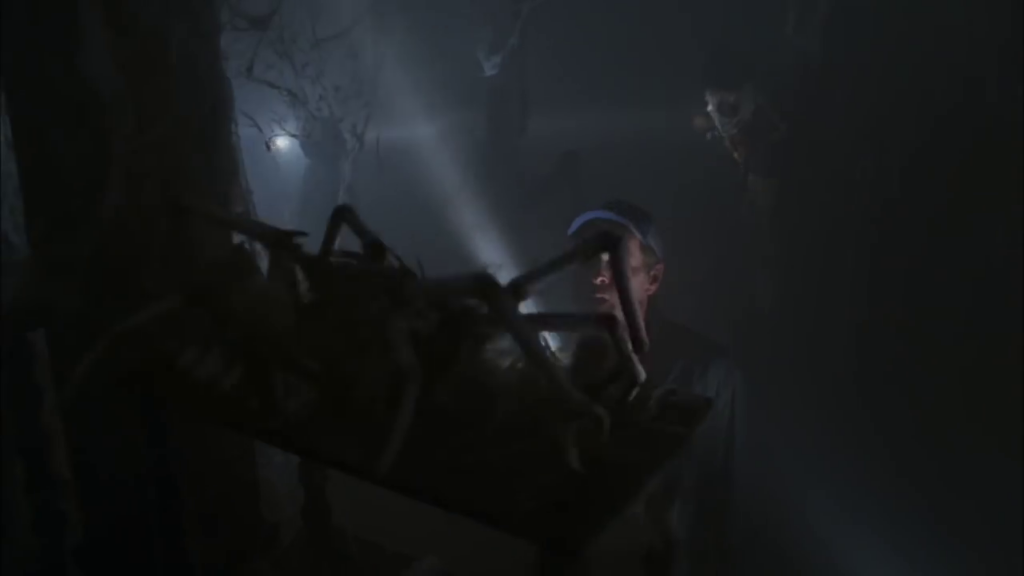
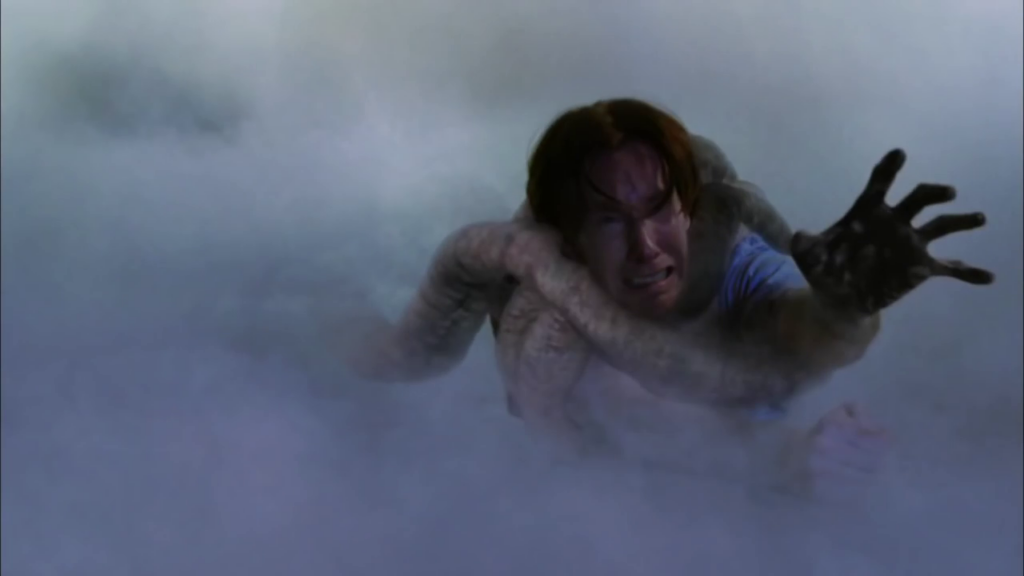
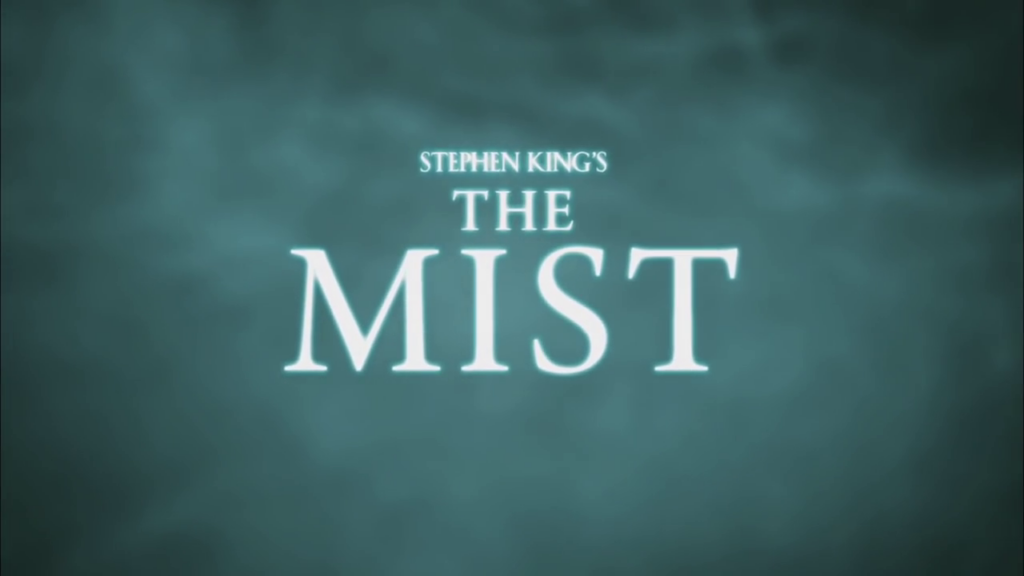
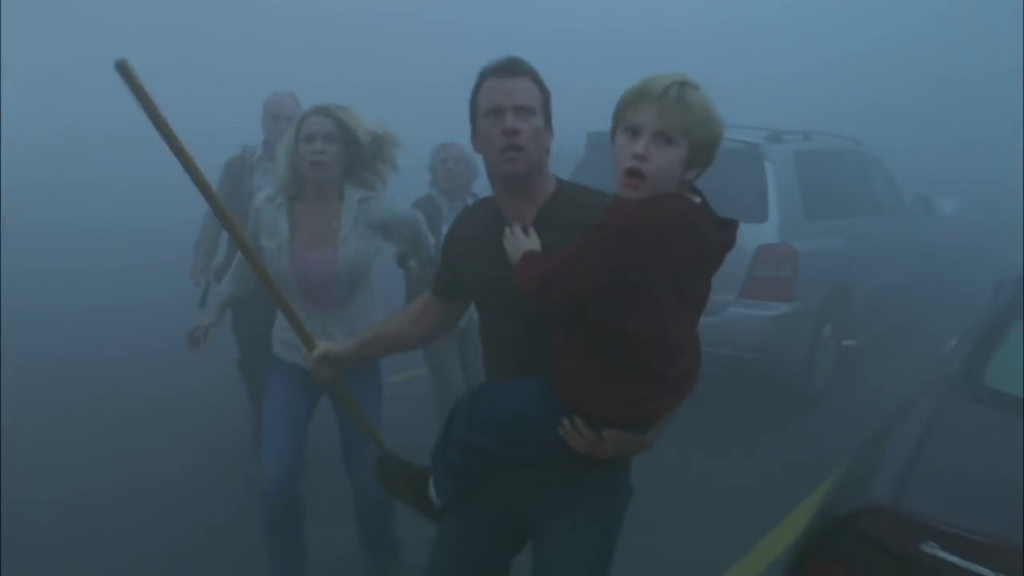
The Mist (2007)
Film review #631
Director: Frank Darabont
SYNOPSIS: After a storm causes significant damage in a rural town in Maine, David Drayton takes his son and neighbour to a nearby supermarket for supplies. While there, a strange mist covers the building, and strange creatures lurk outside ready to kill anyone that leaves. The people trapped within the supermarket have to figure out how they are to survive both the monsters outside and the people within…
THOUGHTS/ANALYSIS: The Mist is a 2007 film based on the novel of the same name by Stephen King. The premise of the film is quite simple: after a storm rips through a rural town in Maine, David heads with his son and neighbour to a supermarket to get supplies. While there, a strange mist covers the whole town, and anyone who leaves to go out into it is killed by something lurking within. The people trapped within must band together and survive, but cracks begin to show when different people have different ideas about the situation. As the film progresses, you get a clearer sense of the horror lurking beyond the mist, but it never gets less terrifying. The film works best as a typical horror film: a good mix of gore, tension and scares that are well-paced throughout the two hour runtime. It explores its setting well, and the possibilities that could arise from it.
The weaker part of the film is the characters: while they are a large and diverse cast, nobody really has much development, and play very specific roles, David as the lead is fairly plain, and while his background is explored in the introduction, it doesn’t really offer a unique angle to be developed for the rest of the film (but I suppose your life story or job don’t really matter much when you’re trapped in a supermarket with monsters outside). The conflict that emerges between different characters obviously tries to delve into the psychological reality of the situation and how different people react under the pressure and terror of the unknown, and it doesn’t quite hit the mark. The preacher that obviously becomes the main antagonist that sees the mist as a punishment from God overpowers every scene and development by having some explanation for it, and doesn’t really give much space for anything else. I get that it’s meant to showcase the political divisiveness of its setting and how fear makes people turn against one another, but it just feels like it flattens any nuance or complexity.
The thing that perhaps polarises viewers the most is the ending: a twist that is so nihilistic that either undoes the films journey, or expertly concludes it, depending on which side you fall on to. regardless, you’ll definitely have some thoughts about it. Stephen King himself thought it was brilliant and better than the one he wrote for the novel, which was left open-ended. Personally, I didn’t know what to think about it: perhaps it needed a better performance from the lead actor to showcase his emotions to have a better impact for me. But again, it’s something you’ll have to form an opinion on yourself.
Overall, The Mist is a fairly solid horror film that has plenty going for it in terms of gore, tension and scares. It misses the mark a little in terms of character development, and being unable to dive further into the psychological terror the cast is facing due to the suffocating presence of the one the film chooses to focus on, but yeah, it’s a pretty decent horror.
-
#630 – Knowing (2009)
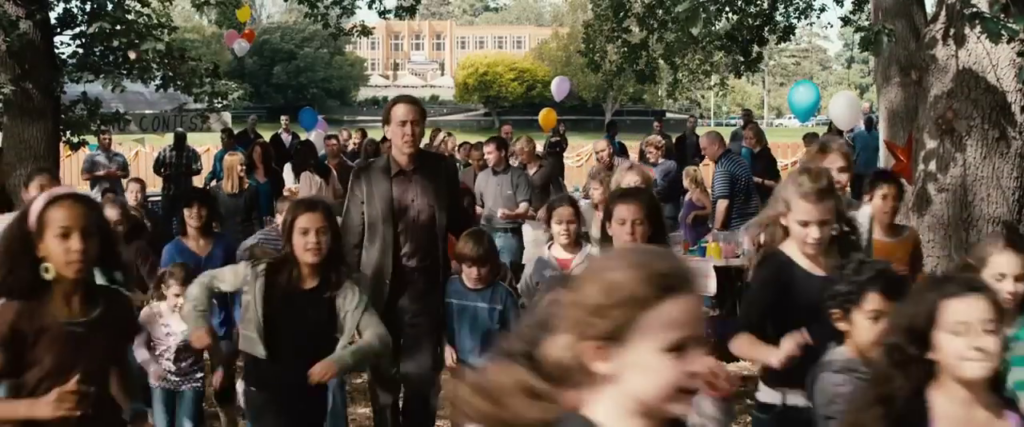
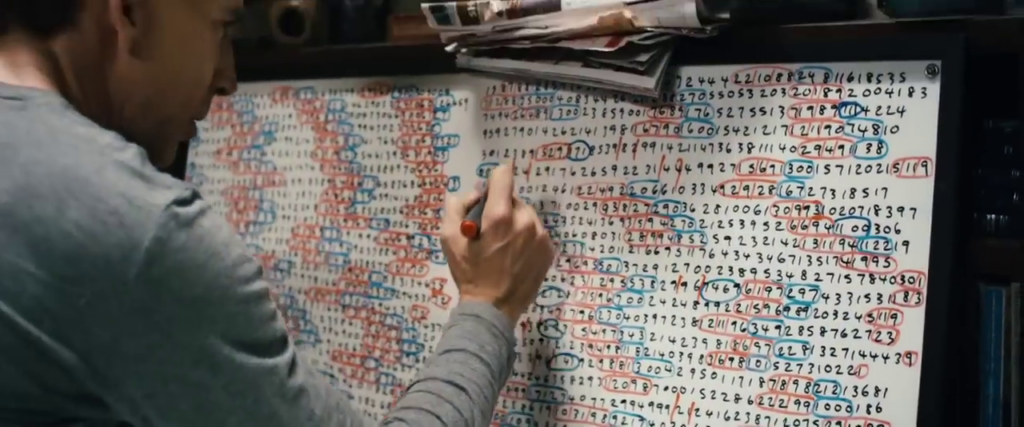
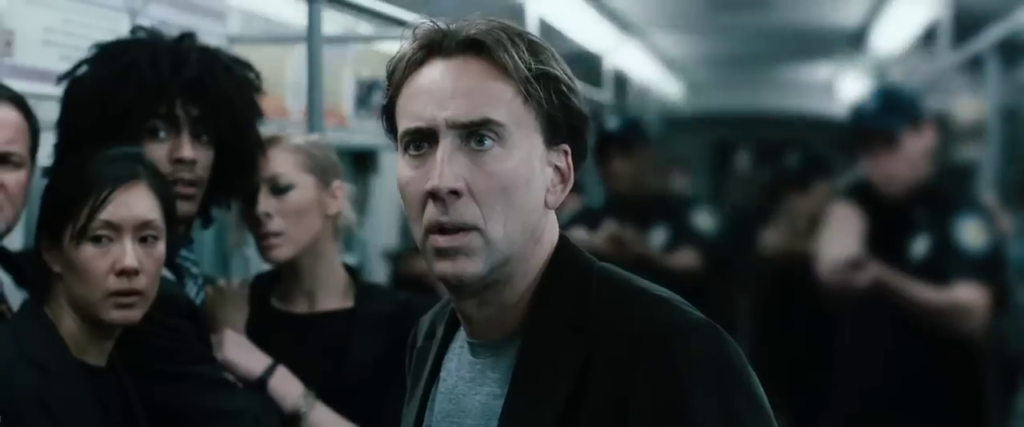
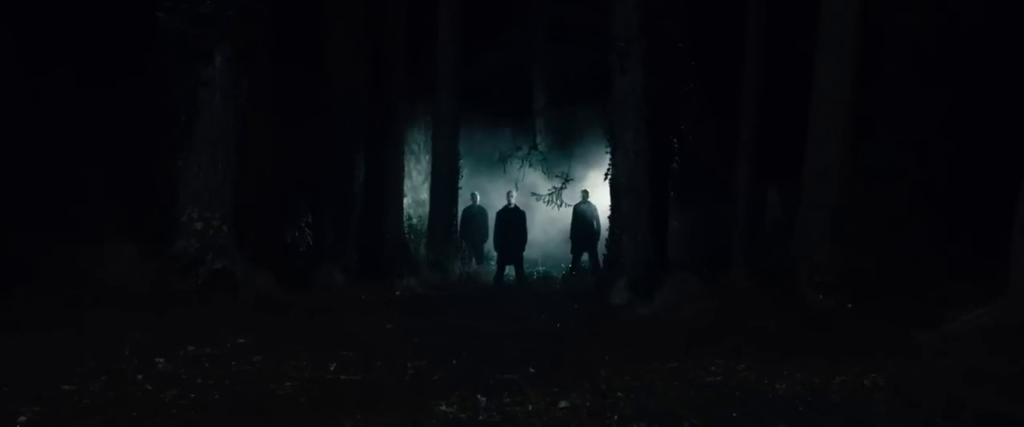
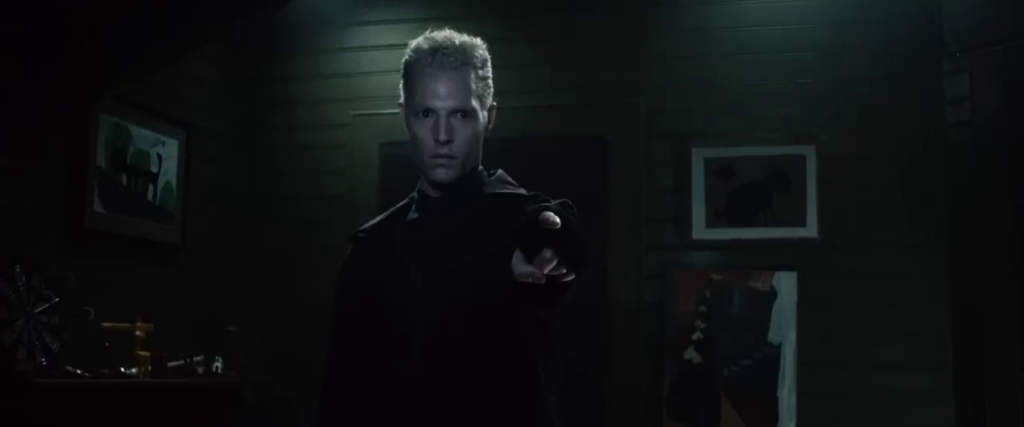
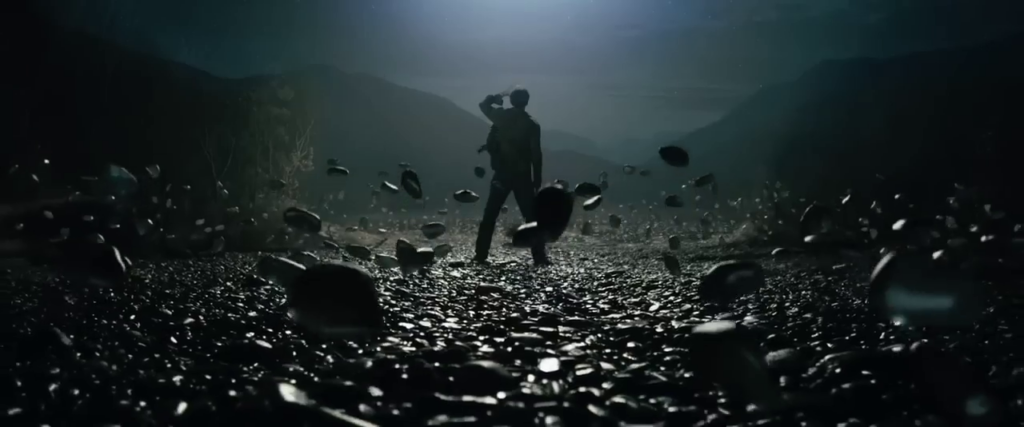
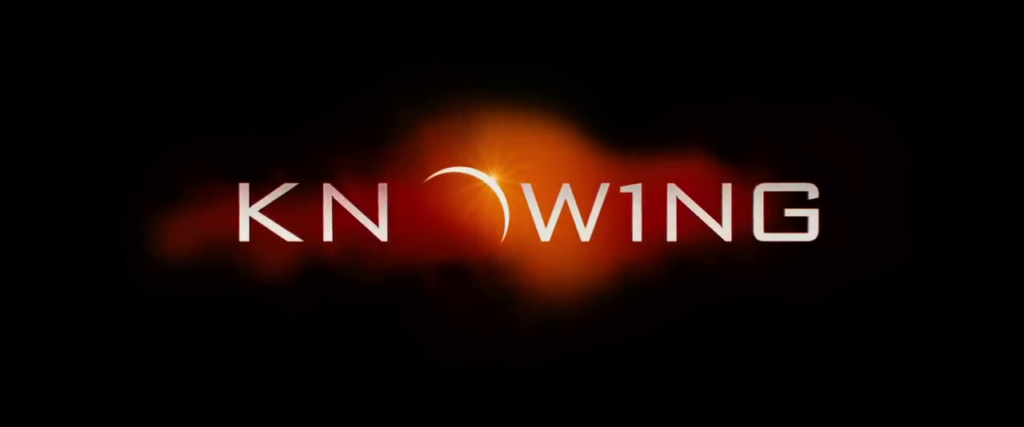
Knowing (2009)
Film review #630
Director: Alex Proyas
SYNOPSIS: A fifty year old time capsule is dug up at an elementary school, and each child gets a picture placed inside of what they think the future will look like. One child, Caleb, gets some sheets of paper filled with numbers. His Father, John, notices that the numbers correspond to the dates of disasters and how many people died. When the numbers predict upcoming disasters and the end of the world too, John must find a way to keep his son safe…
THOUGHTS/ANALYSIS: Knowing is a 2009 sci-fi film. When a fifty-year old time capsule is dug up outside an elementary school, pupil Caleb Koestler receives a letter from inside filled with numbers. His Father, MIT Professor John Koestler, notices that the numbers correspond to the dates of disasters and the numbers killed. With similar disasters predicted in the numbers, John races against time to try and stop them. Thrown into the mix is the death of John’s wife over a year ago still hanging over him, a strained relationship with his parents, a philosophical quandary between determinism and randomness, and the end of the world. There’s a lot going on here. The problem with all this stuff floating around is that nothing really coheres into a central core of the film. There seems to be no real drive about what to do with the information contained in the numbers. Obviously John tries to stop the events from occurring…well, one, but then the film pivots to just accepting that it can’t be stopped, resulting in an ending that just really throws out any kind of mystery and intrigue and kind just…accepts fate, leading to abrupt resolutions of different aspects that aren’t particularly satisfying. I guess the main thread through the film is meant to be the relationship between John and his young son, but this never really develops in any way, alongside lead actor Nicholas Cage’s usual uneven ability to deliver emotional moments. Any time the film tries to express this relationship, it just feels very forced.
The whole philosophical debate between randomness and determinism is not explored in any great detail, and it’s barely addressed beyond the opening. The film does hit you over the head a bit with making John an MIT Professor on randomness and determinism, and it feels like there’s little room for nuance. There’s a few good scenes in here that grasp these disasters well, but it’s difficult to really link them all together. There just doesn’t seem to be anything to do or anywhere to go with these numbers beyond the fact that they have predicted things that happened. The film gives us some big disaster set pieces which have a good sense of destruction and chaos, but are let down by poor CG. The final act of the film flips the story on it’s head, and decides that the aim is not to predict and stop disasters, but to actually end the world and just accept it. This isn’t something that’s really built up in the film, and just undoes any work it put in. Having a certain amount of ambiguity with the “Whisper People” doesn’t really work either, and just what could be a grounded, serious drama and just adds nondescript aliens where they’re not needed.
Overall, Knowing doesn’t seem to know what it is or where it is going. It fails to deliver on an emotional drama between a Father and Son, and fails to impress with it’s philosophical footing on the debate between randomness and determinism. A few good scenes and moments whose impact are undone as the film loses its way towards the finale.
-
#629 – Flight World War II (2015)

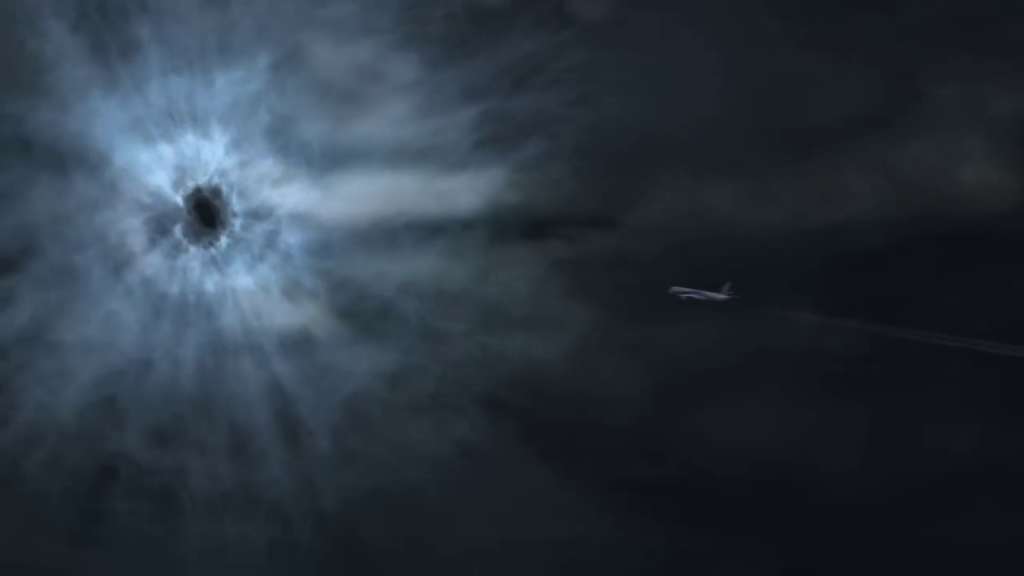

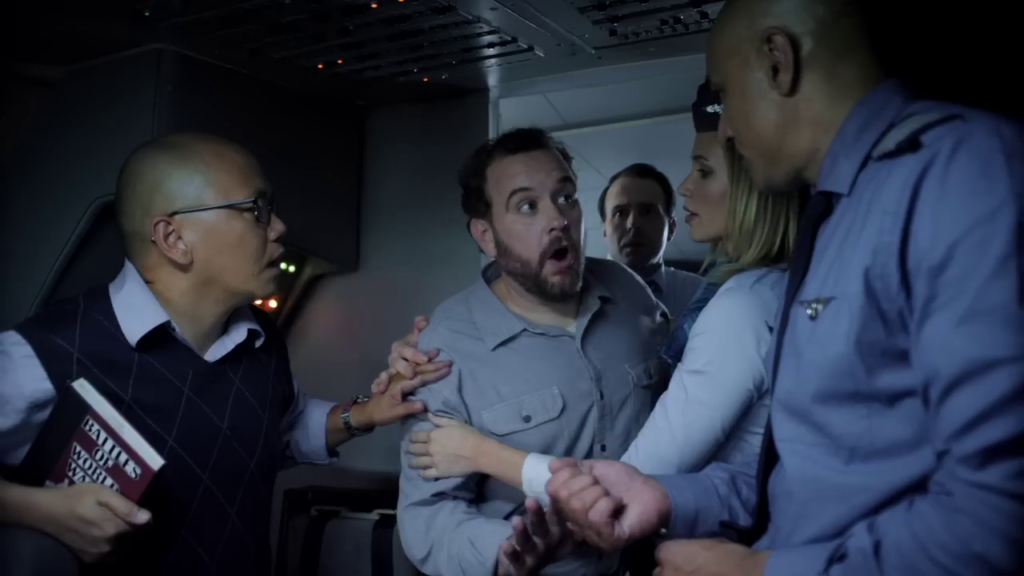
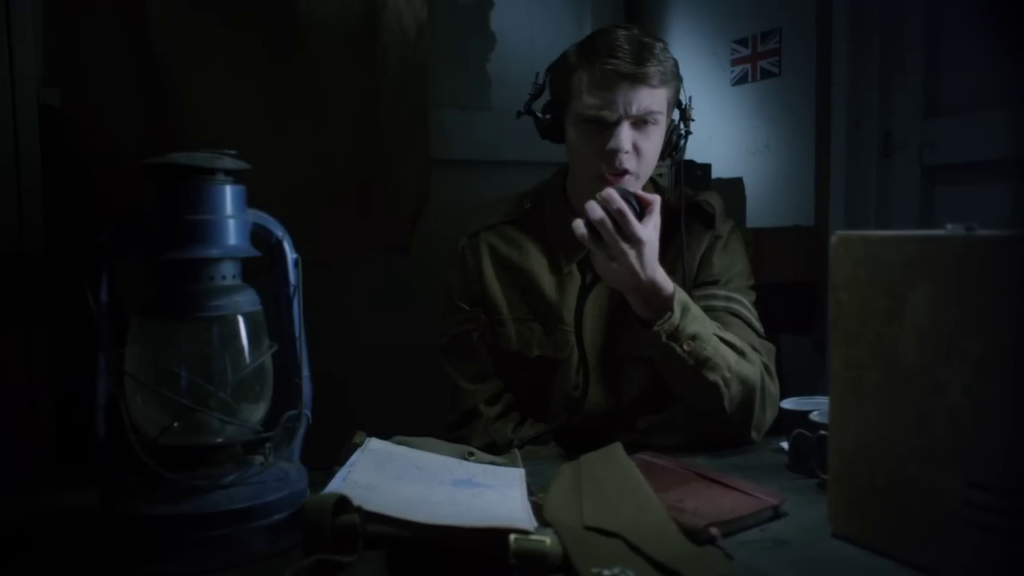
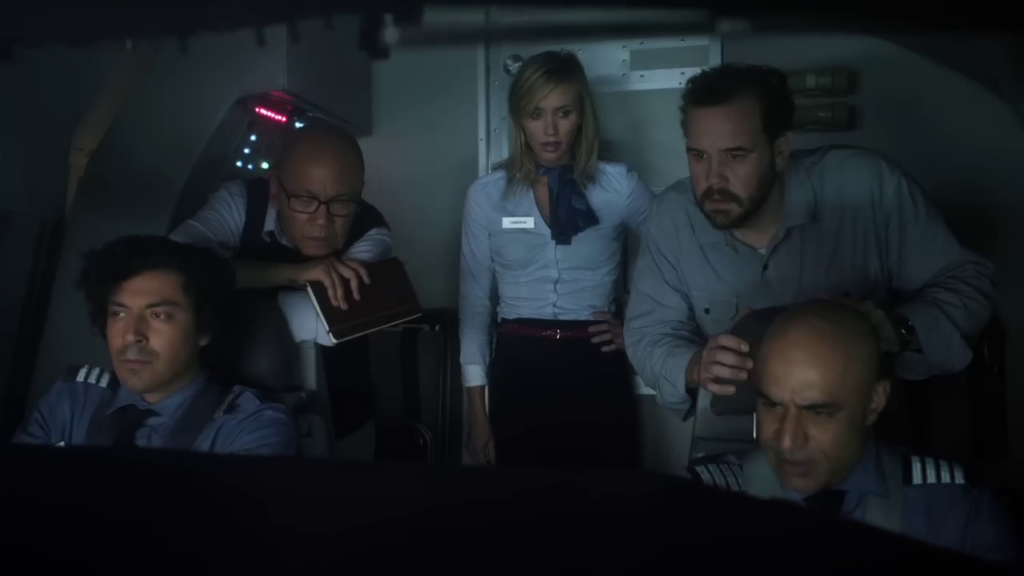

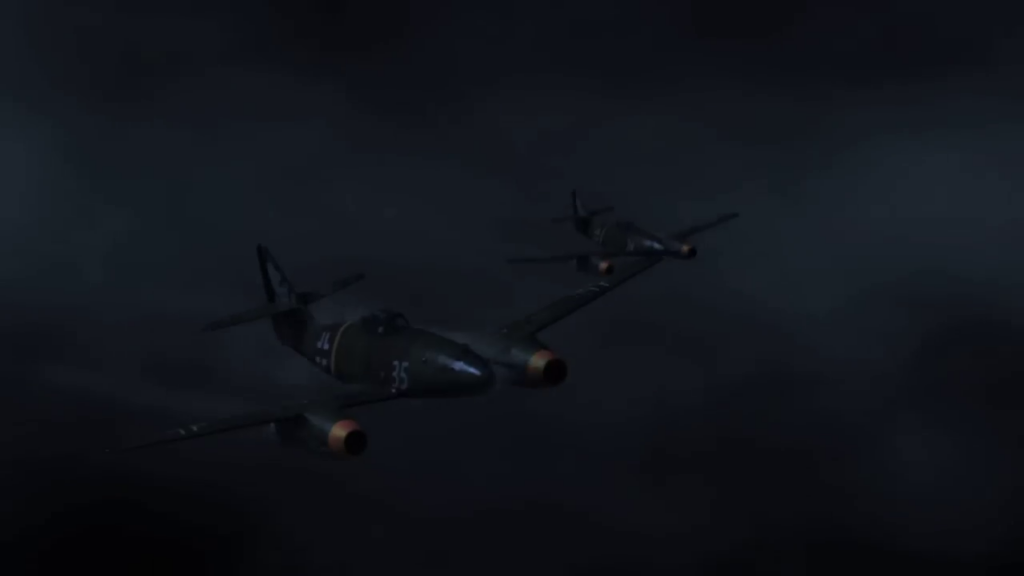
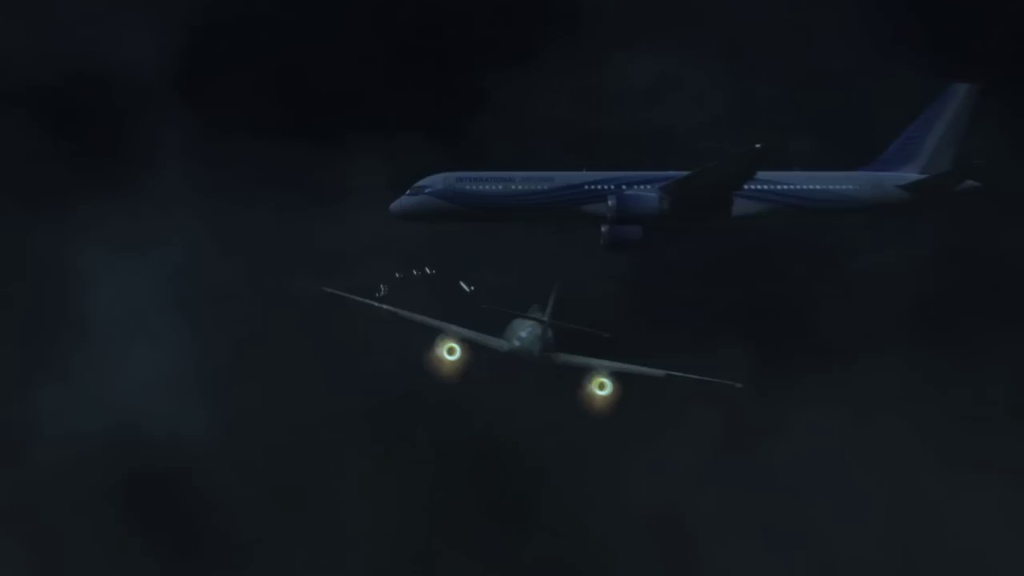
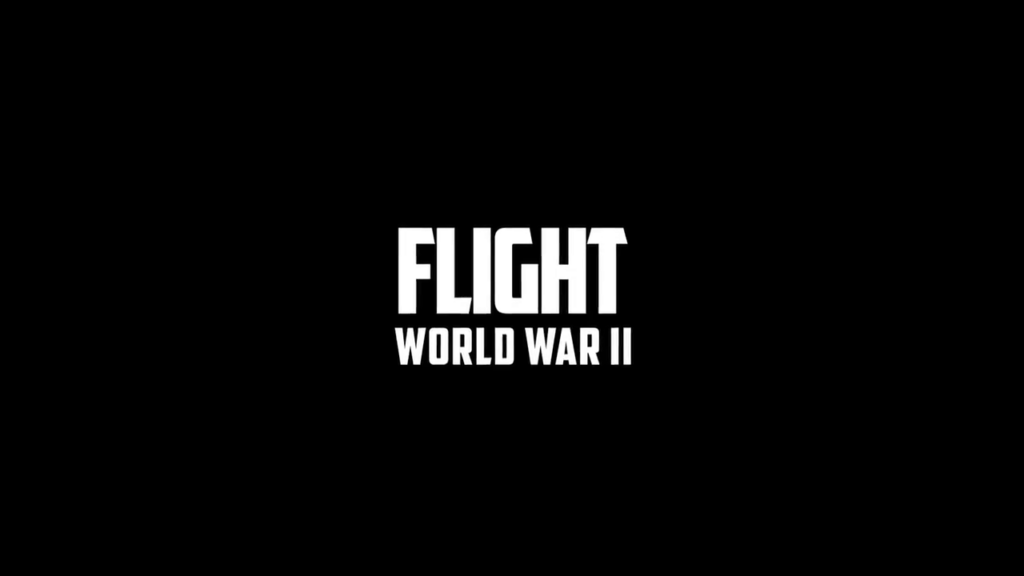
Flight World War II (2015)
Film review #629
Director: Emile Edwin Smith
SYNOPSIS: A commercial flight to London encounters a strange storm that it flies through, and ends up over the skies of France in 1940 during World War II. With their only contact with the ground being a young British officer, the crew must find a way to keep it safe from enemy fighters, and make its way home…
THOUGHTS/ANALYSIS: Flight World War II is a 2015 sci-fi disaster film. A routine commercial flight to London travels through a strange storm in the air, and emerges on the other side over the skies of France in 1940 during the second world war. The crew and passengers have to deal with the situation, aided only by a young British soldier on the ground named Nigel. The concept I suppose is interesting, but it is extremely similar at its core to The Philadelphia Experiment from 1984, but in reverse, as two aircraft personnel were sent forward in time from the second world war to 1984. First thing to notice is that this film is produced by The Asylum; notorious makers of low budget, often derivative films that cash in on recently released films with barely disguised rip-offs that are just distinct enough to avoid legal action. So if you know The Asylum’s work, you’ll know to expect very little. The film explores some of the implications of time travel, but it creates way too much of a mess with the concept, and raises far too many plot holes that are ignored.
With nearly all of the film set in the plane, there’s no need to splurge on fancy sets, which is ideal for The Asylum. You could certainly make a film like this feel tense and claustrophobic, and get into the different perspectives of the passengers, but that doesn’t really happen. Everyone is a flat, cut-out character with no real personality or uniqueness. We are not given a background on anyone, so there’s nothing to really to develop. The fact that there just so happens to be two academic experts on world war two on a plane that just so happens to travel back to world war two is somehow even less believable than the whole time travel thing.
Probably the most annoying thing about this film is it’s complete lack of relation to reality: there’s things like the German planes you see not being invented until after the film that you can overlook, because that’s very specific knowledge you won’t pick up unless you’re super into world war two history. The main problem is with when the fighters shoot the passenger plane and is riddled with bullet holes: a passenger plane would go down pretty quickly after even a few hits. There’s also points where the windows are blown open and the cabin is de-pressurised, but in the next scene everyone is sitting in their seats fine: there would be no plane left if there was a massive hole in it. The fact that someone is blown out of a door would probably have altered time in some way if someone found their body with their mobile phone or whatever they had on them? There’s just so many things that are just distracting. The “twist” at the end is fairly predictable, and is infuriating, because they just faintly acknowledge it. It’s one of those instances where you want to see more from the twist, rather than just leaving it open for interpretation.
Overall, Flight World War II offers very little in every way: the concept is underdeveloped, the characters are one-dimensional, and the logic of what happens with the pane are at complete odds with reality. It’s not really a “so bad it’s good” film either, as there’s nothing humourous either; just a drab wander through the motions.
